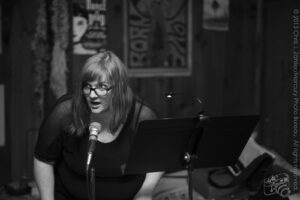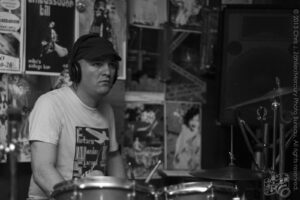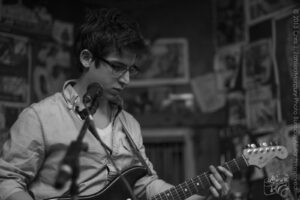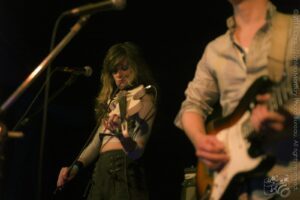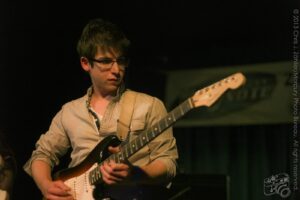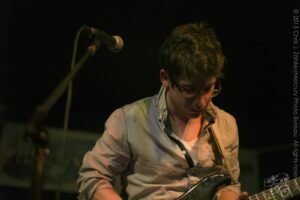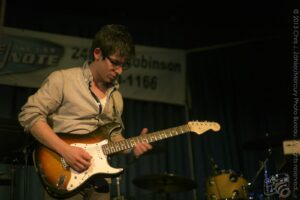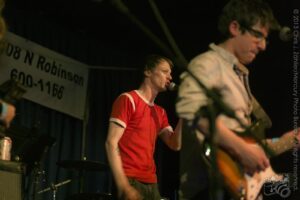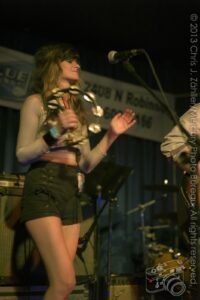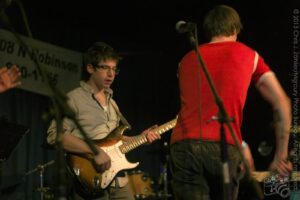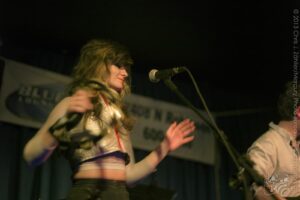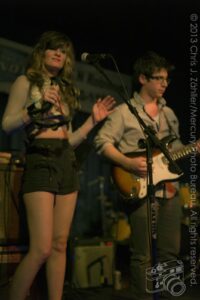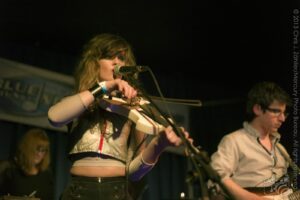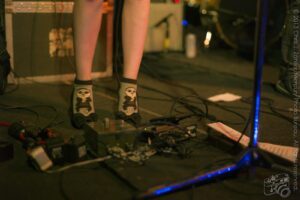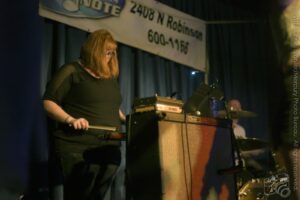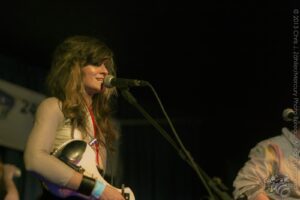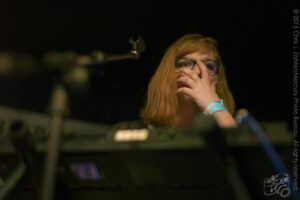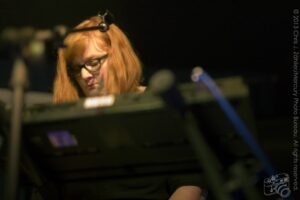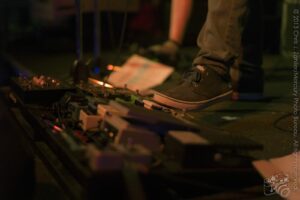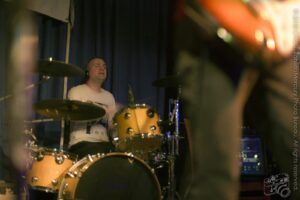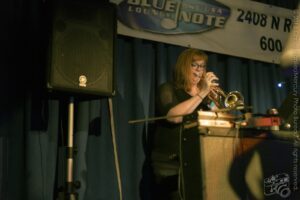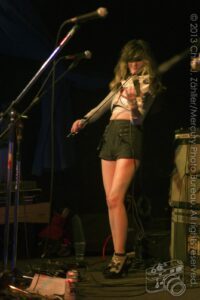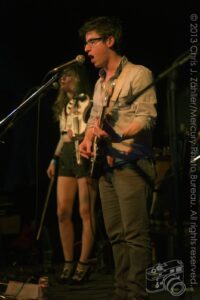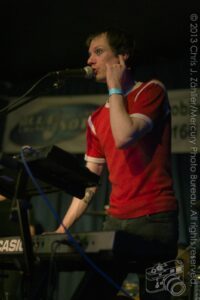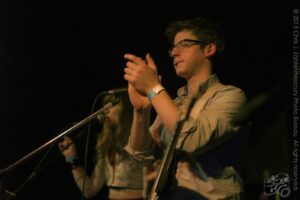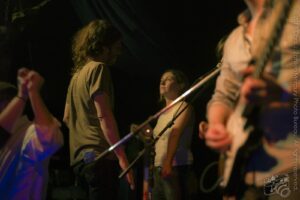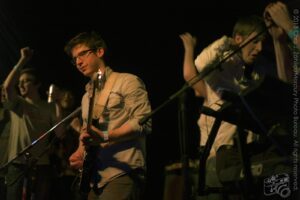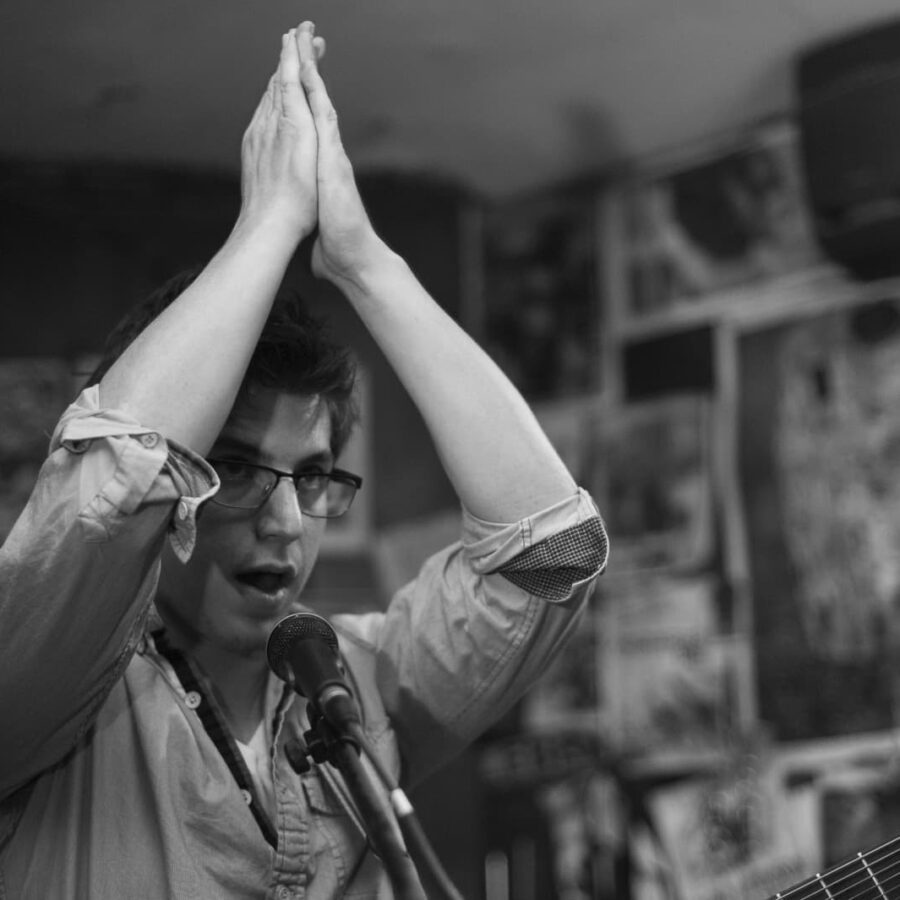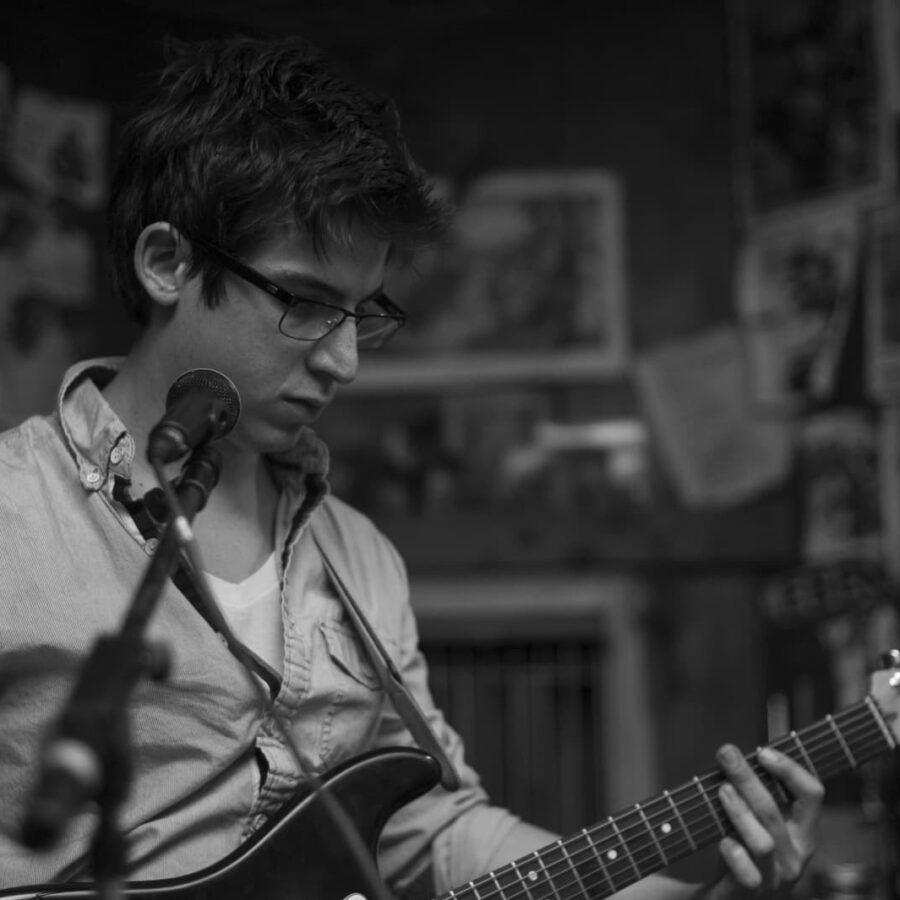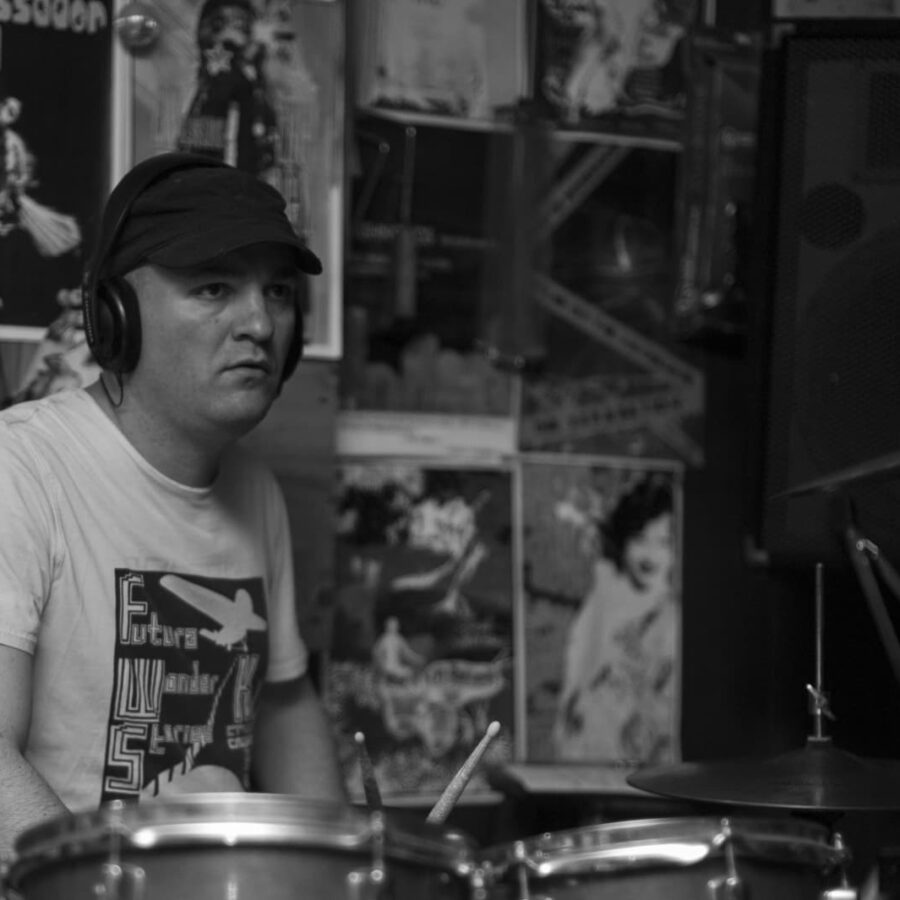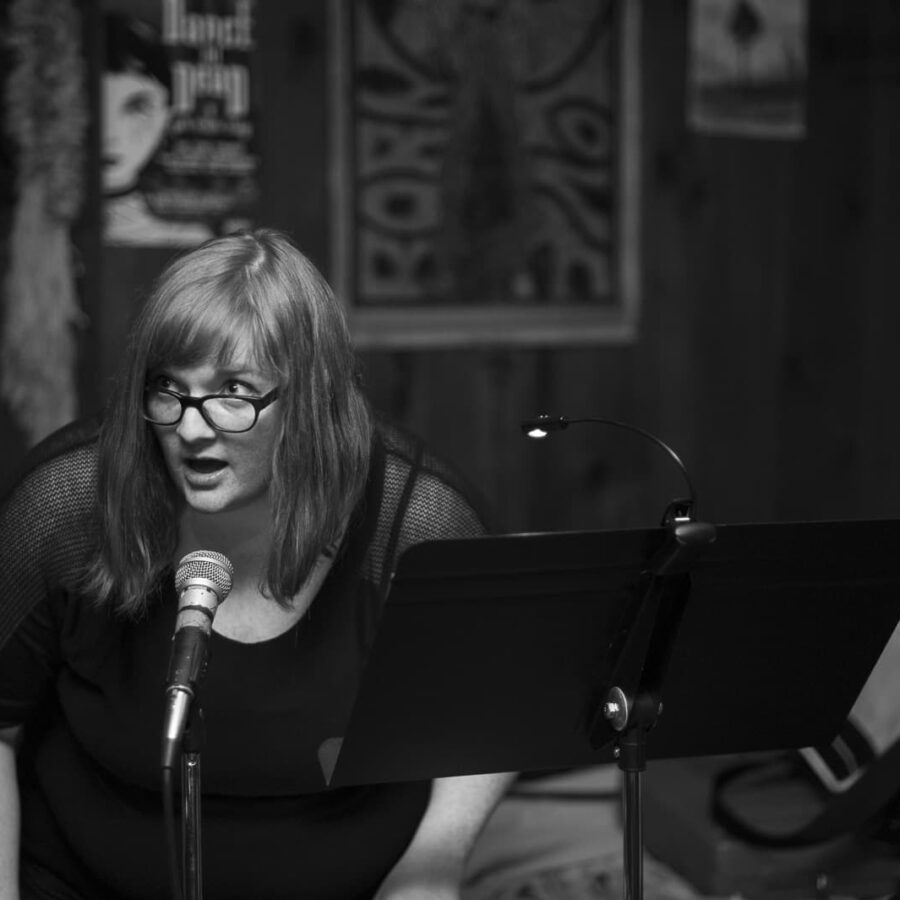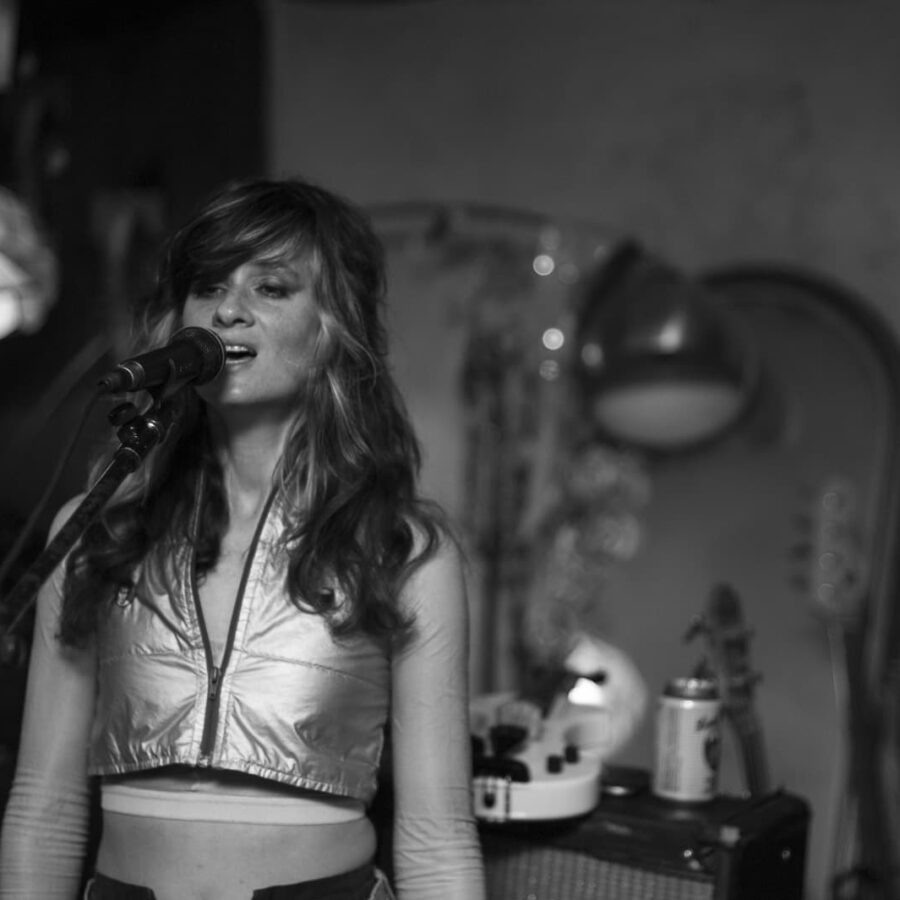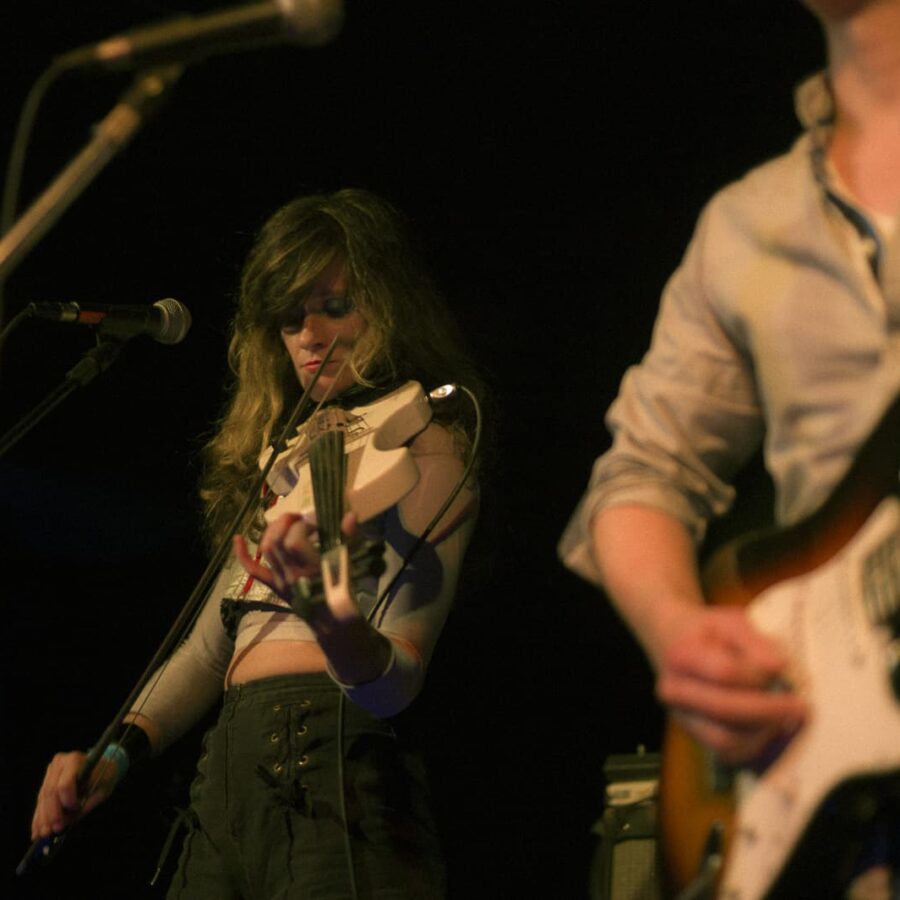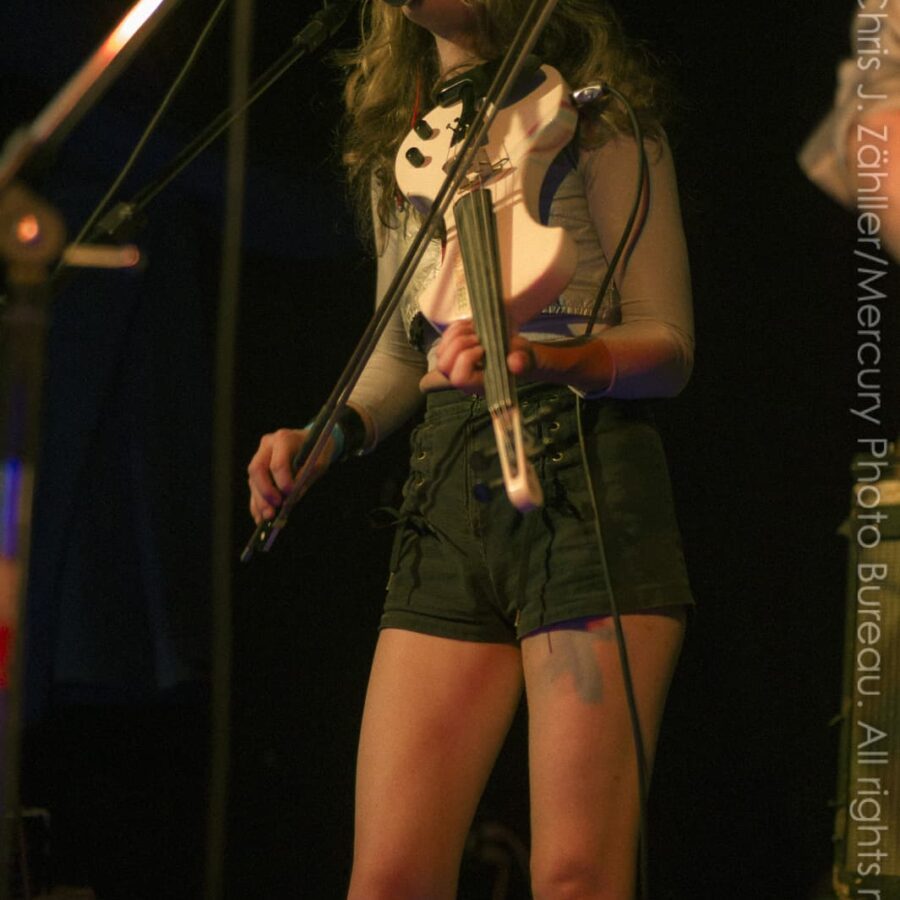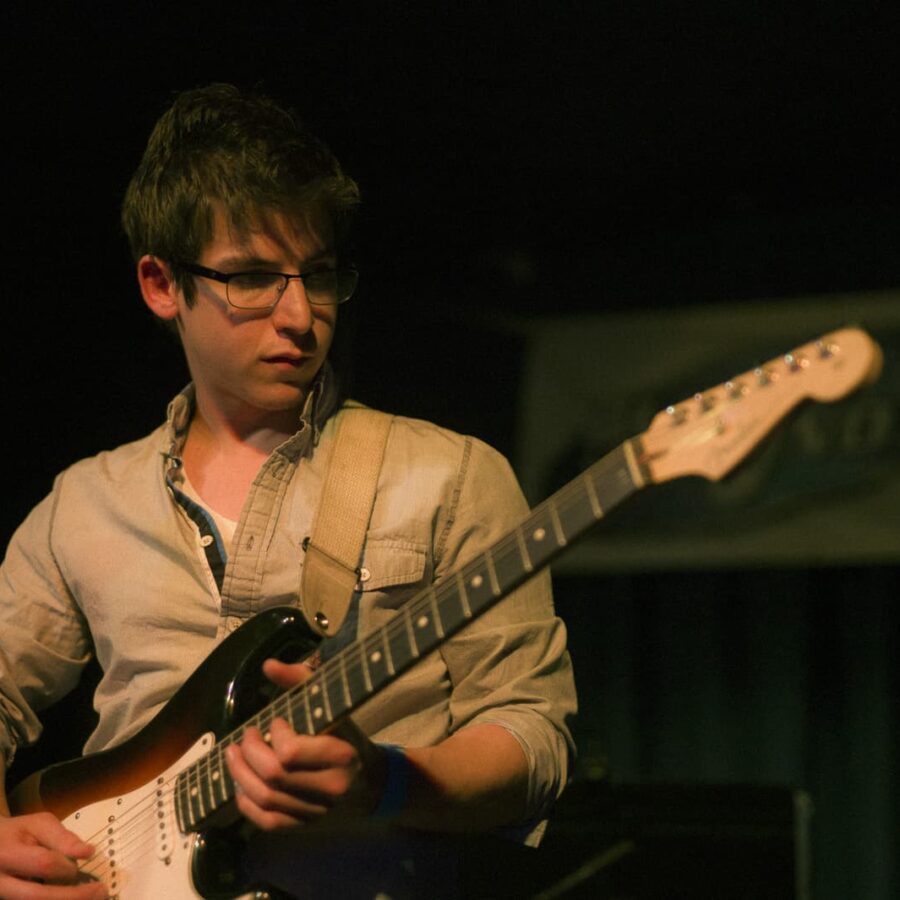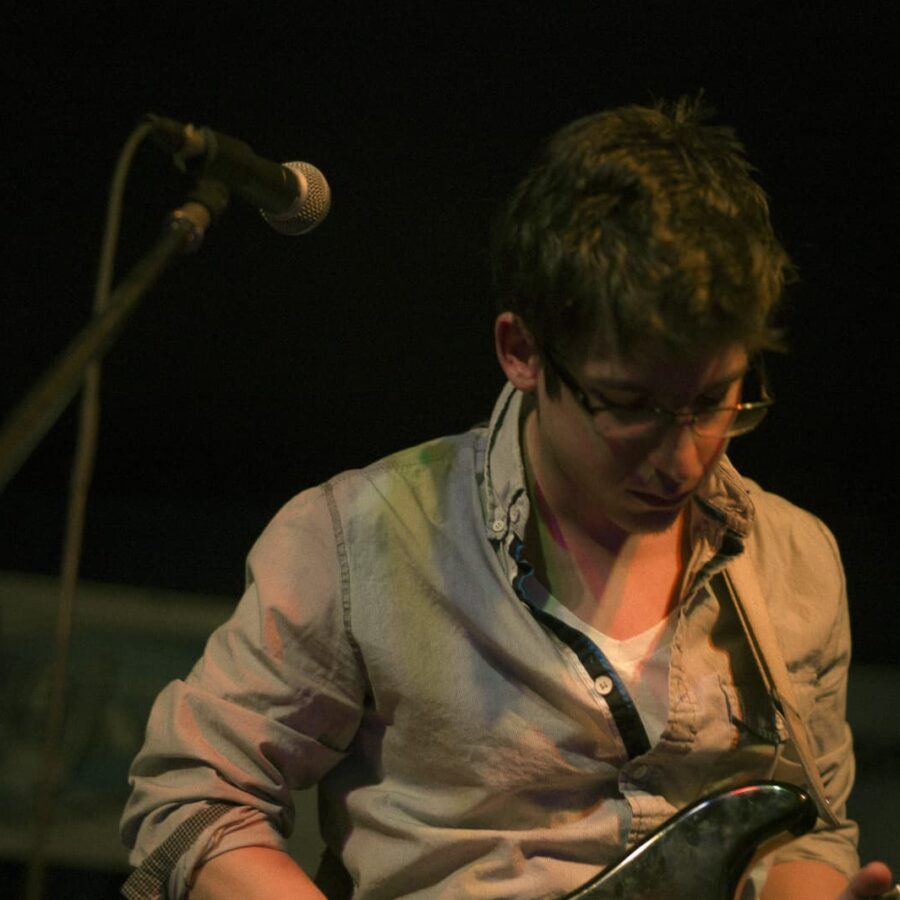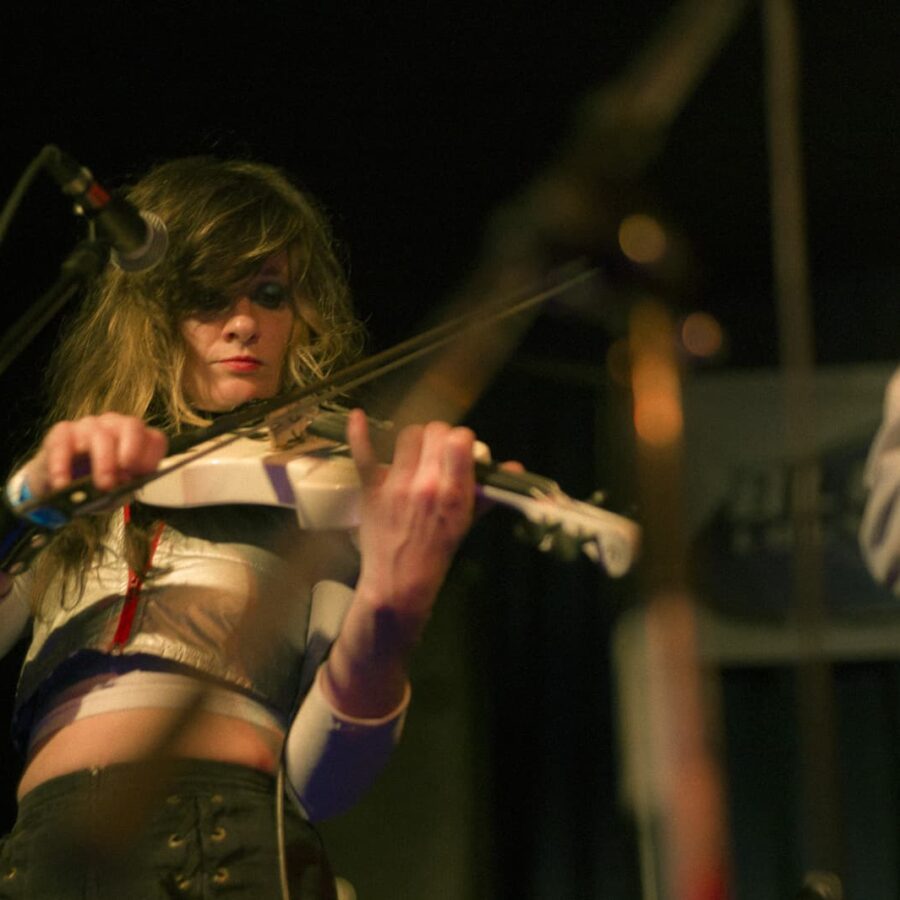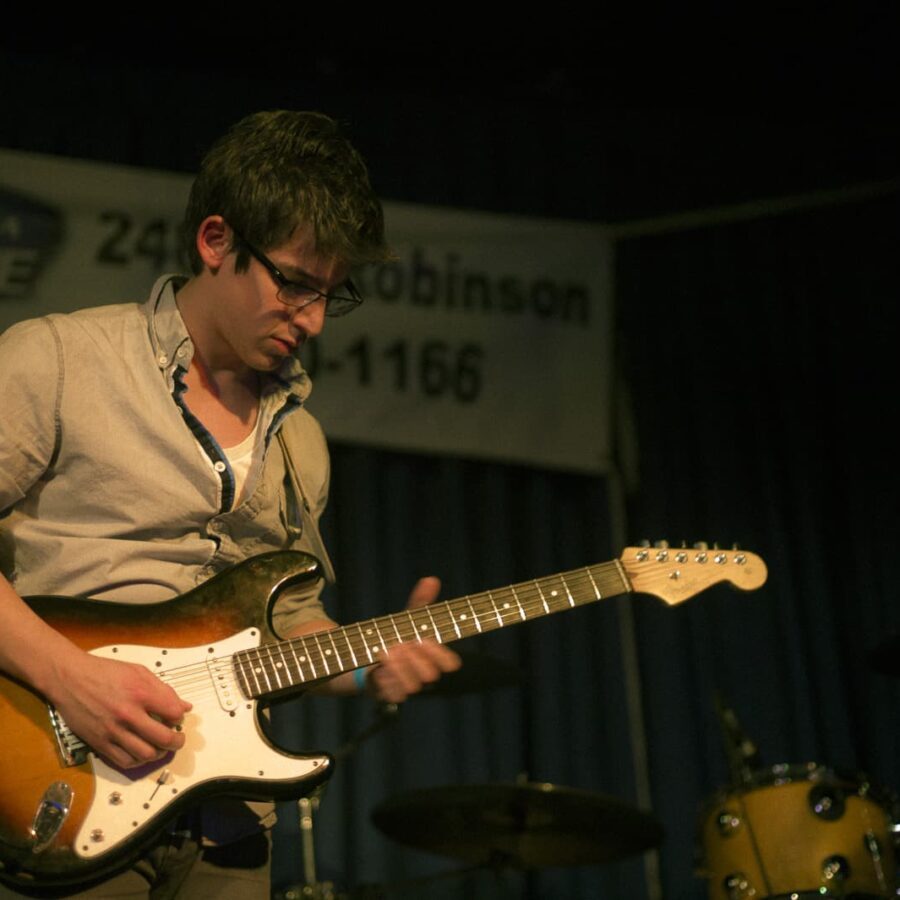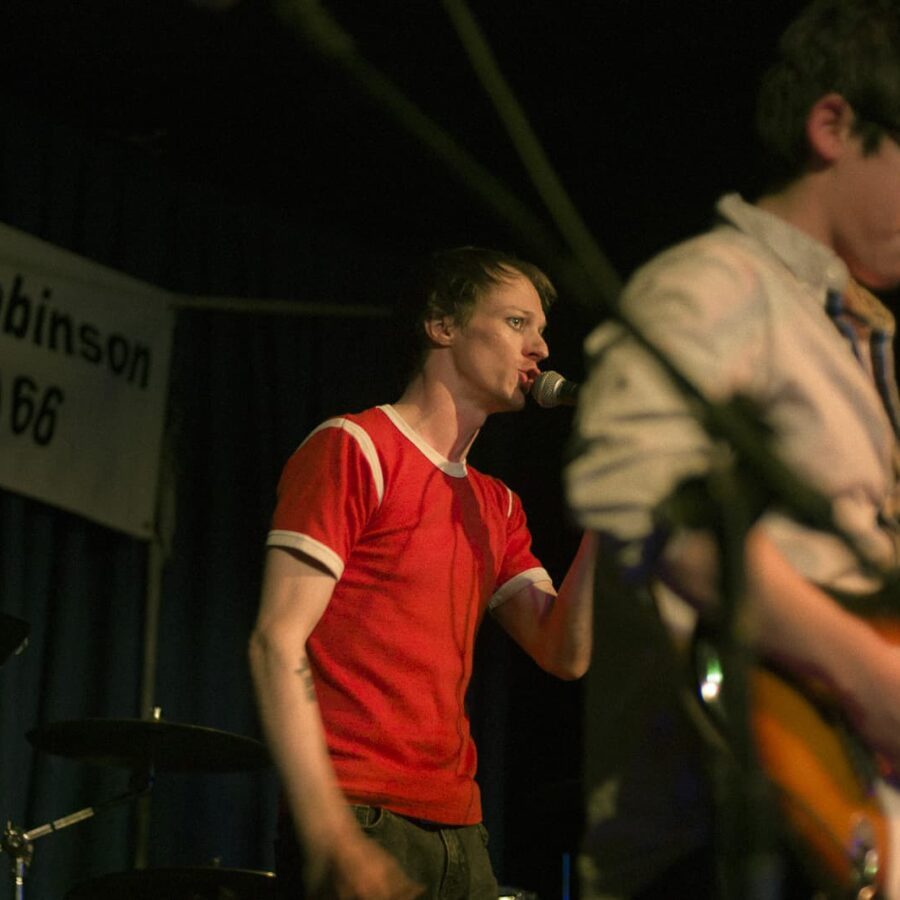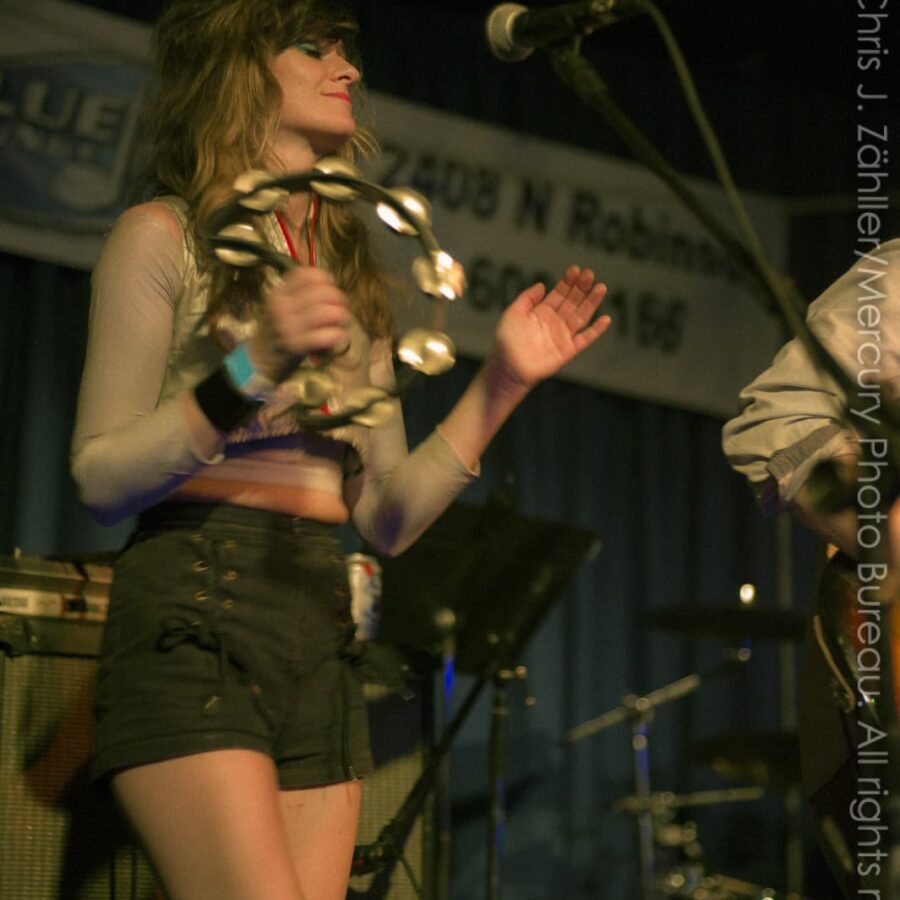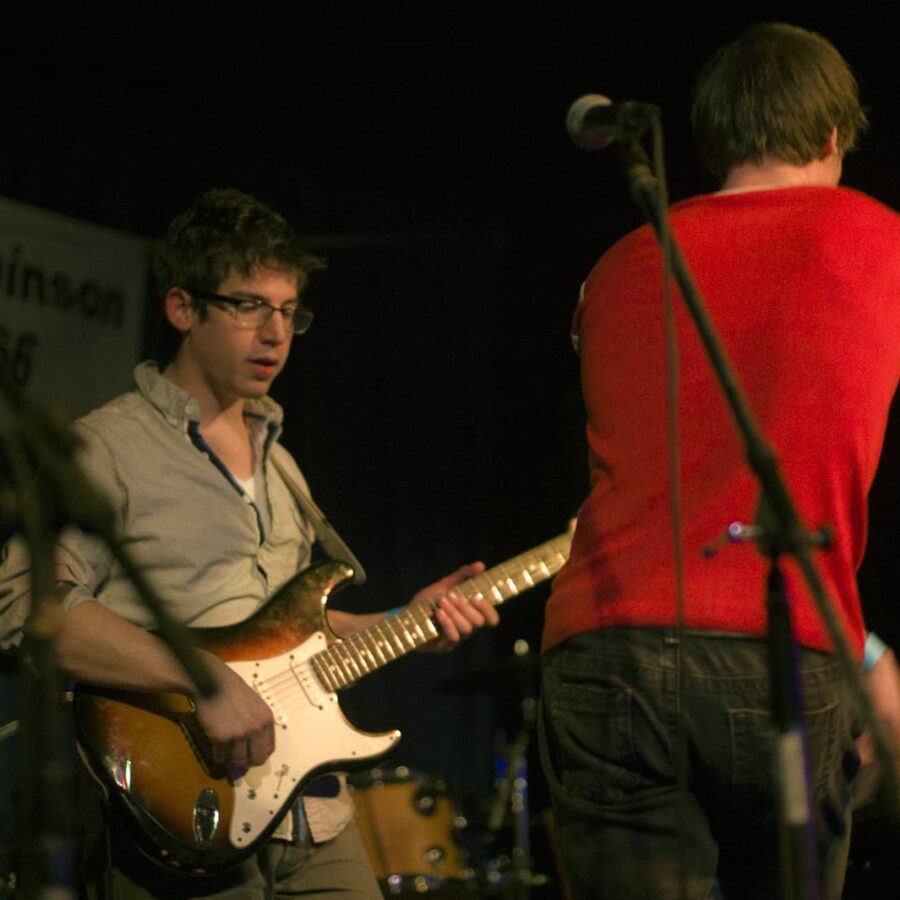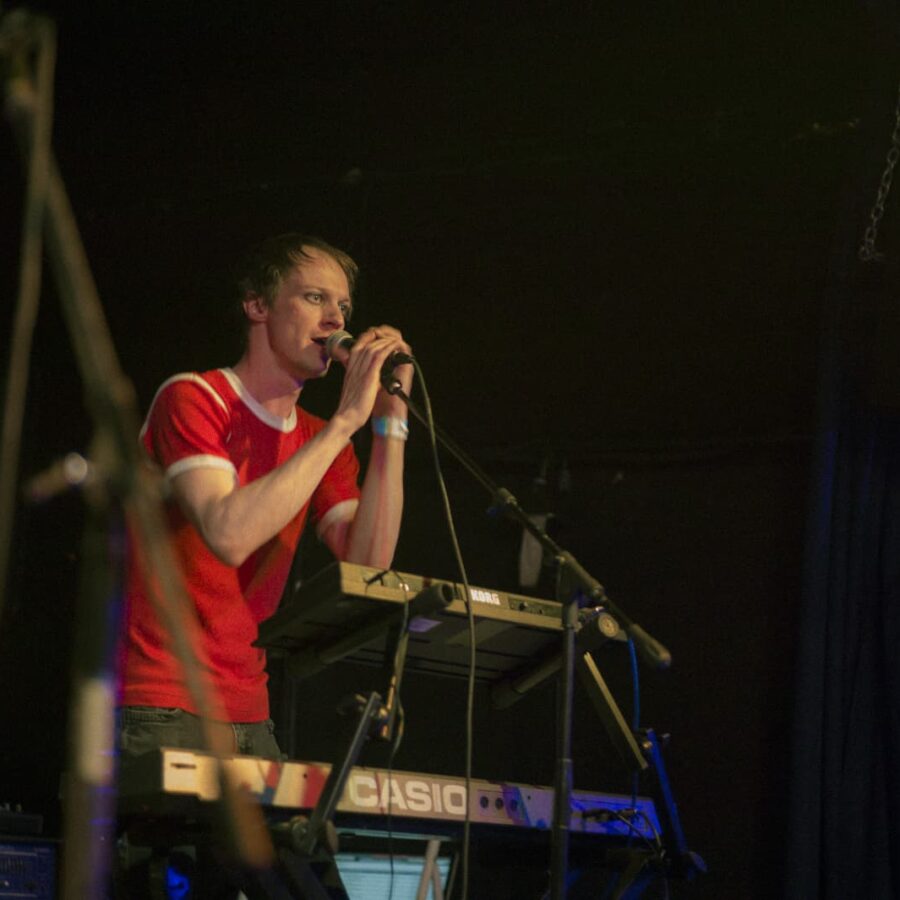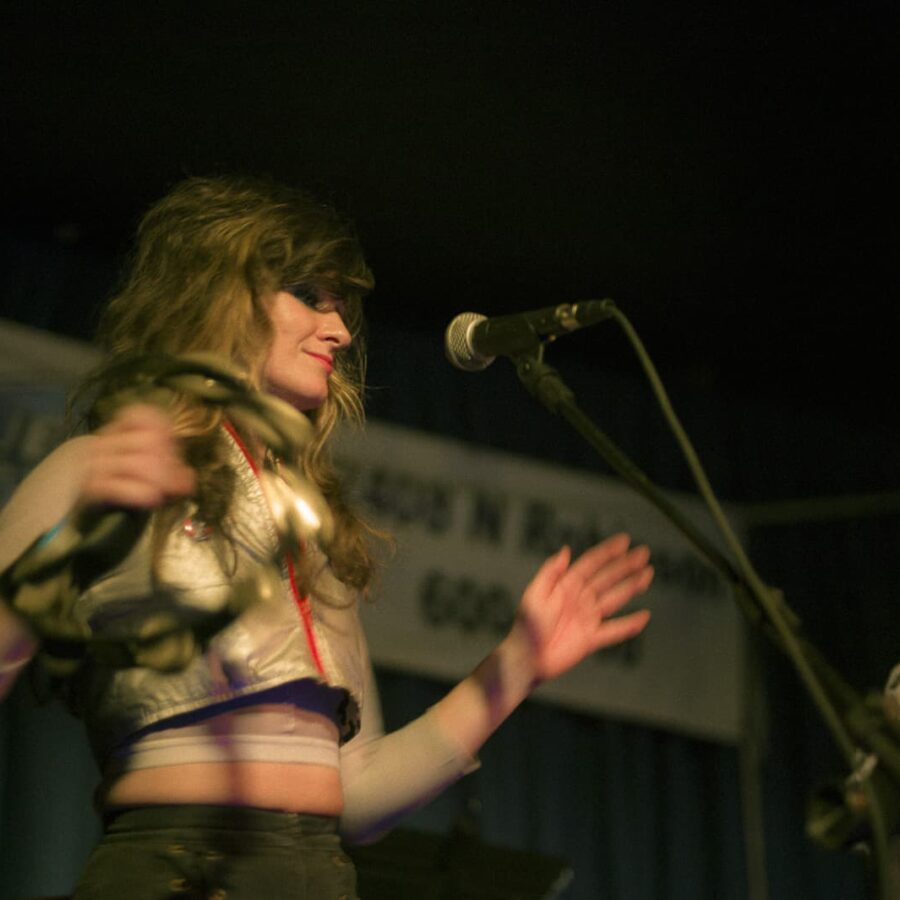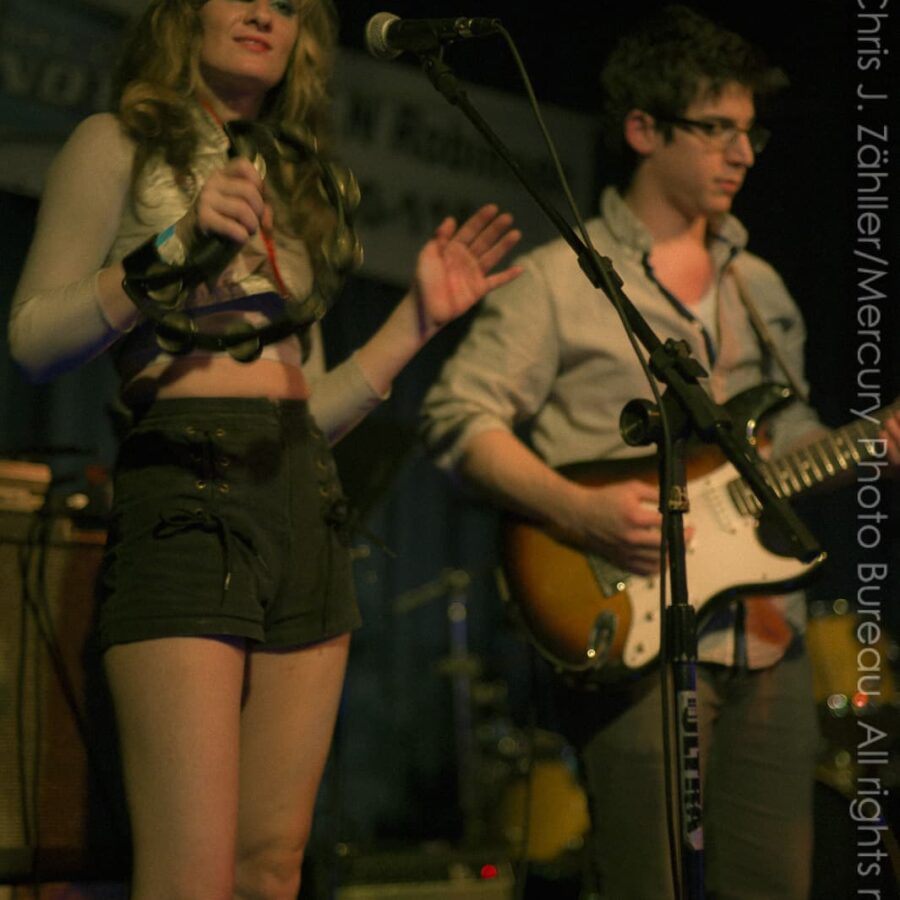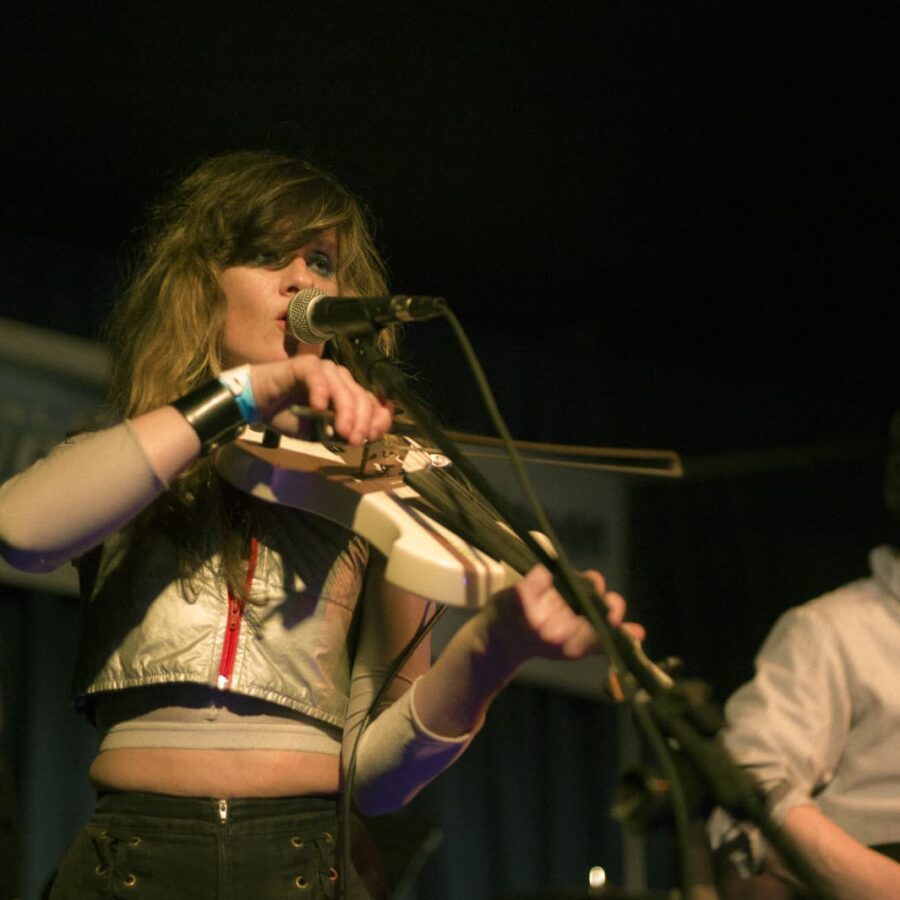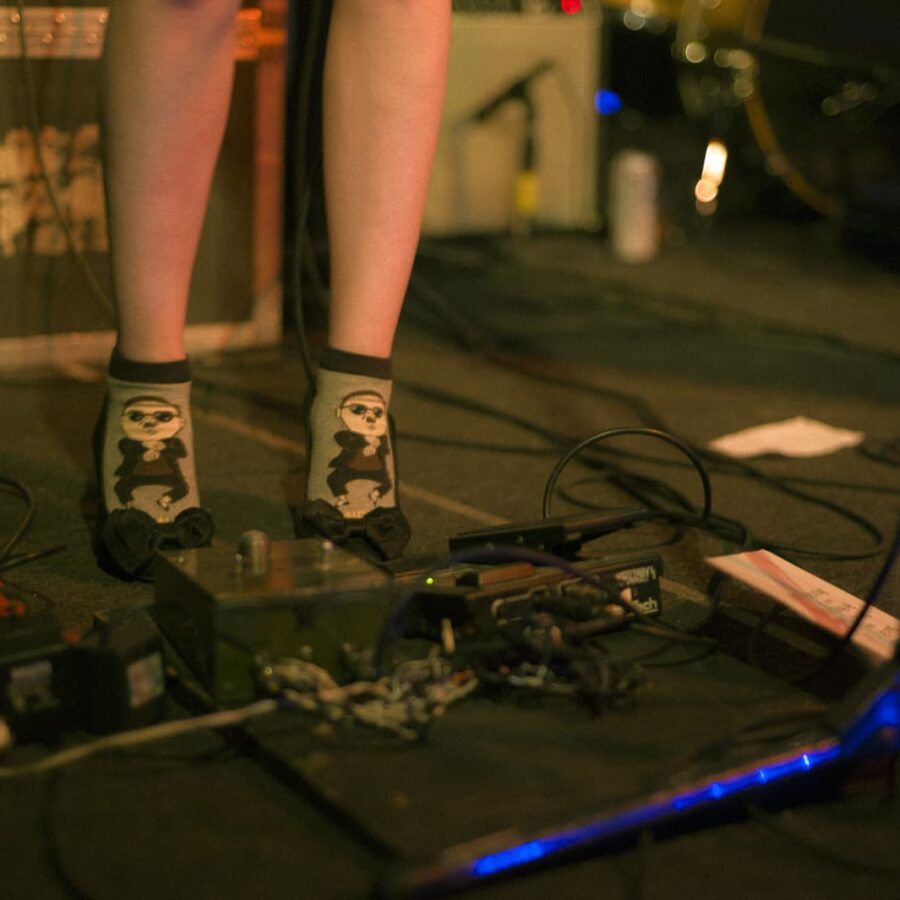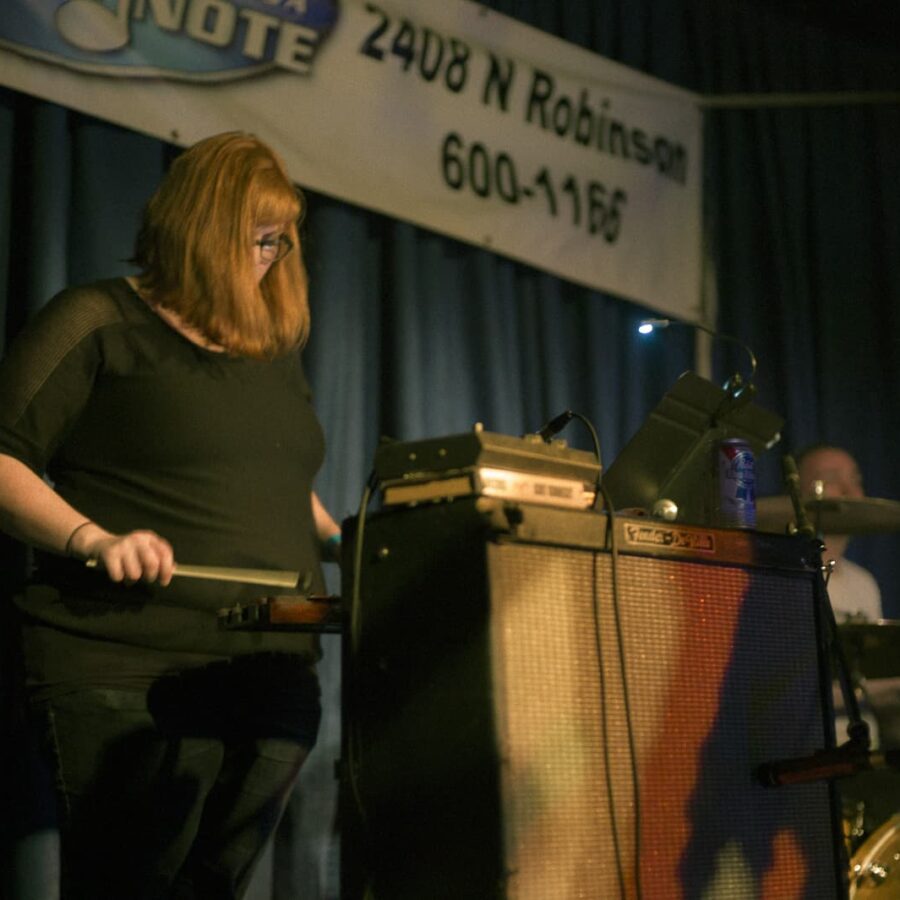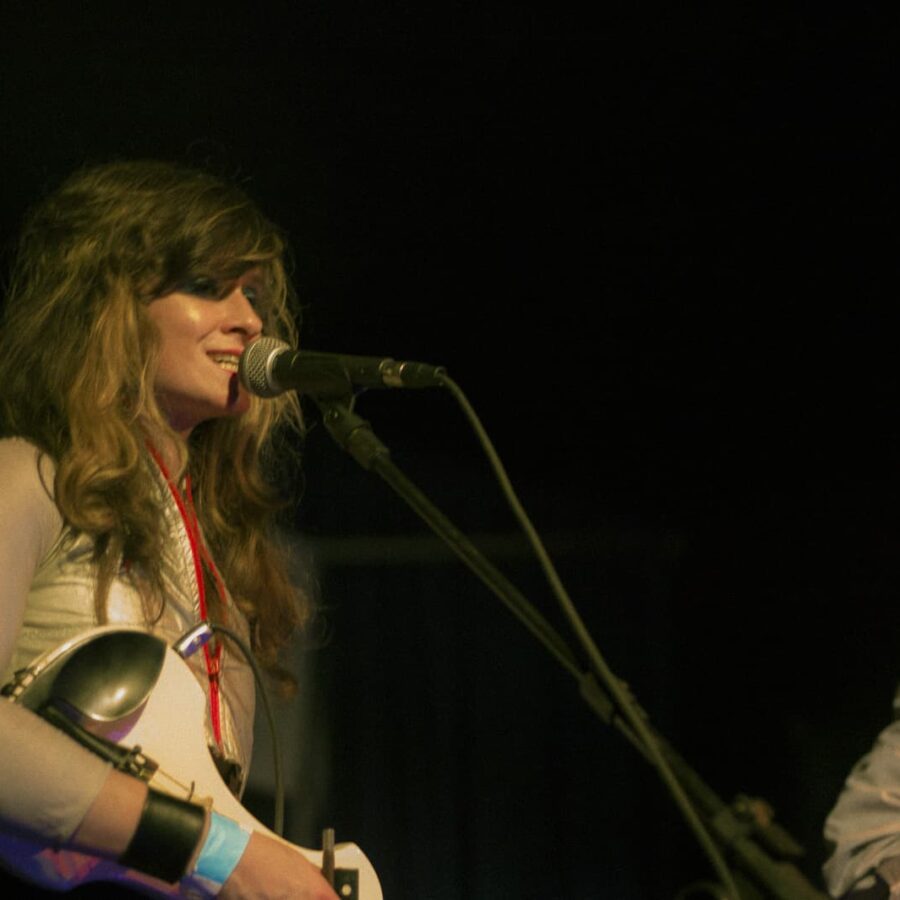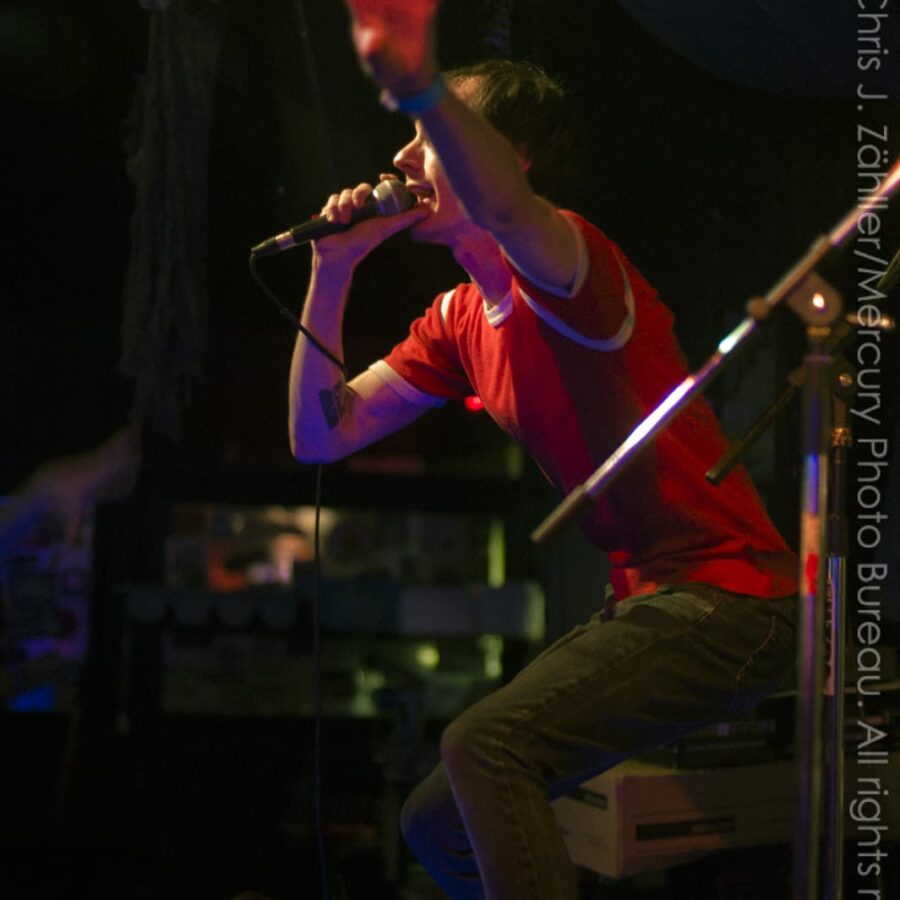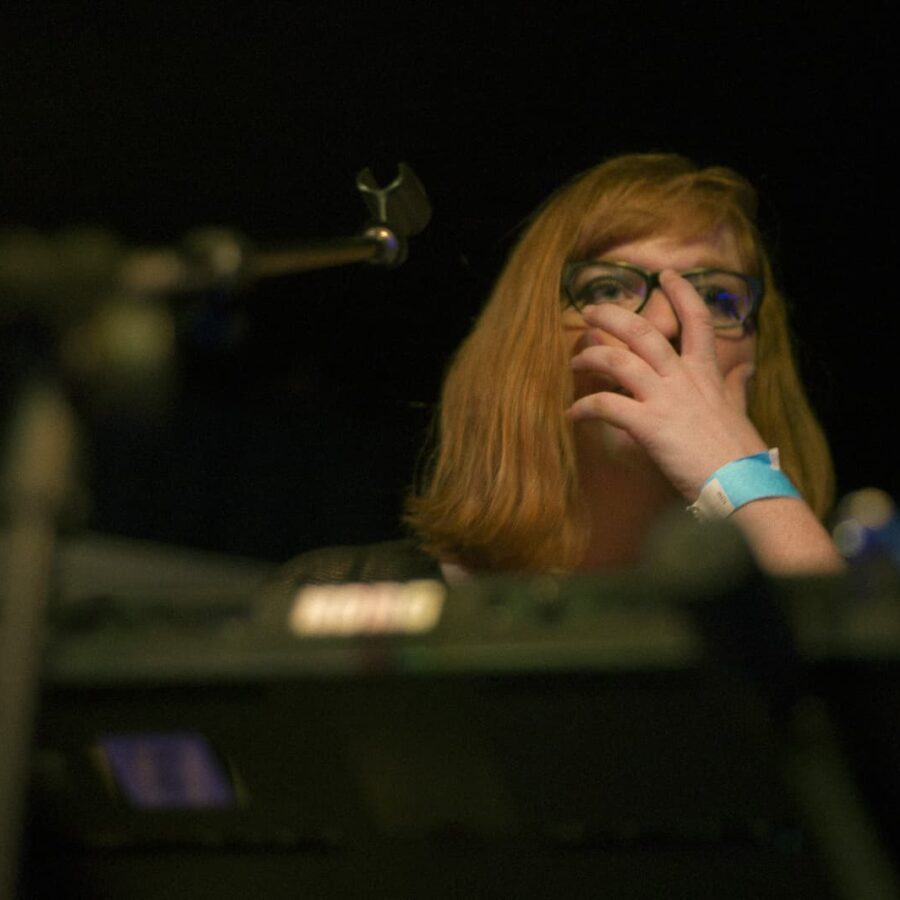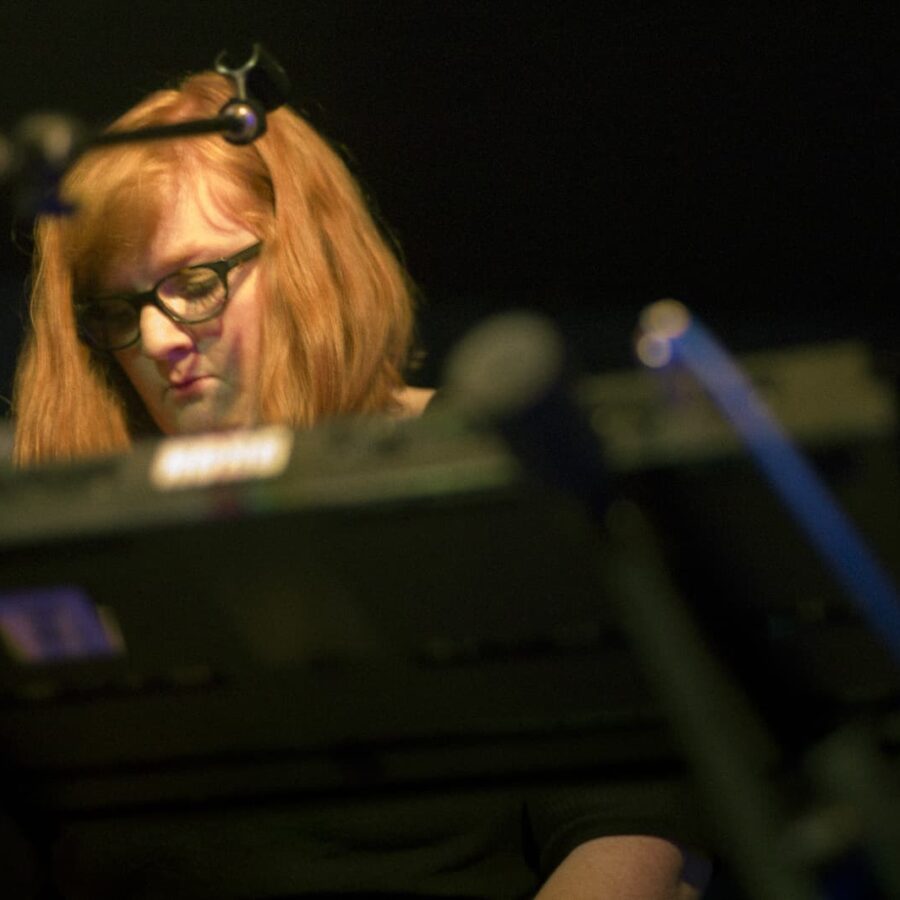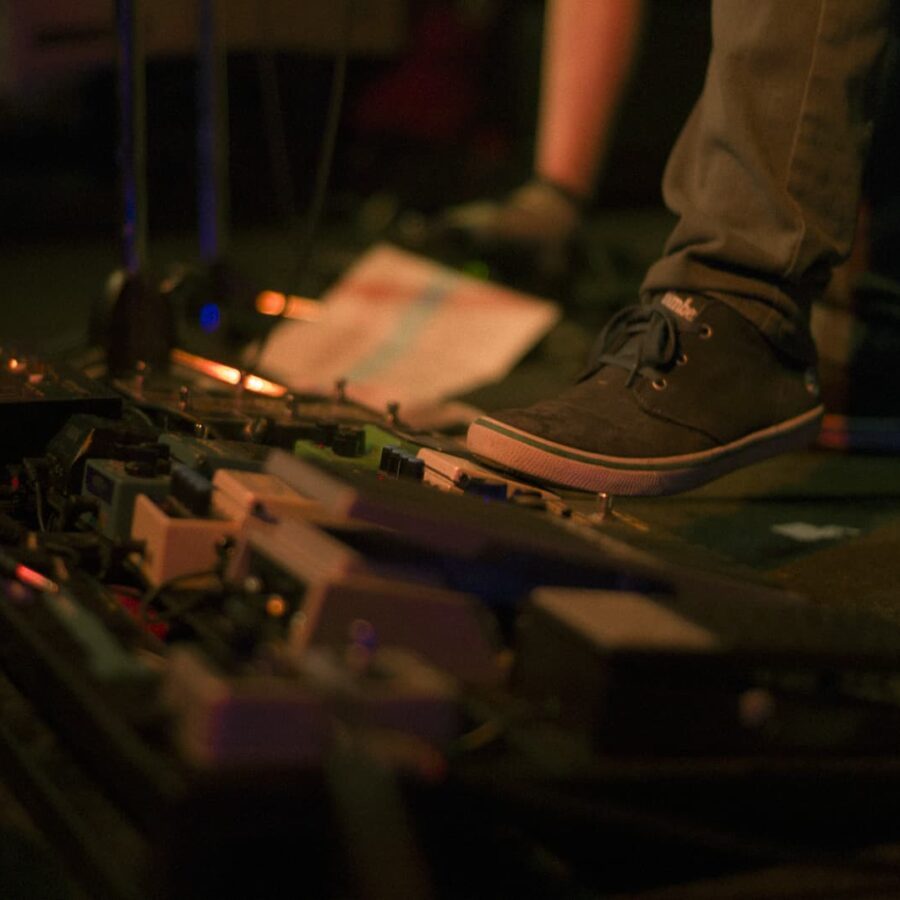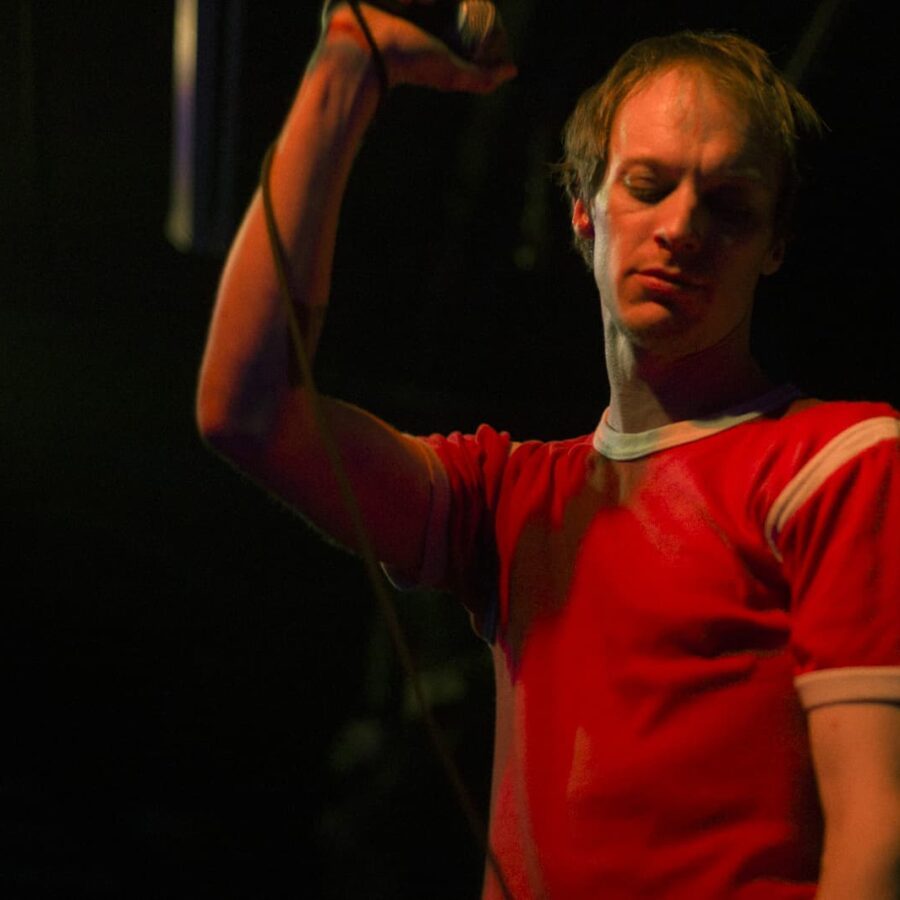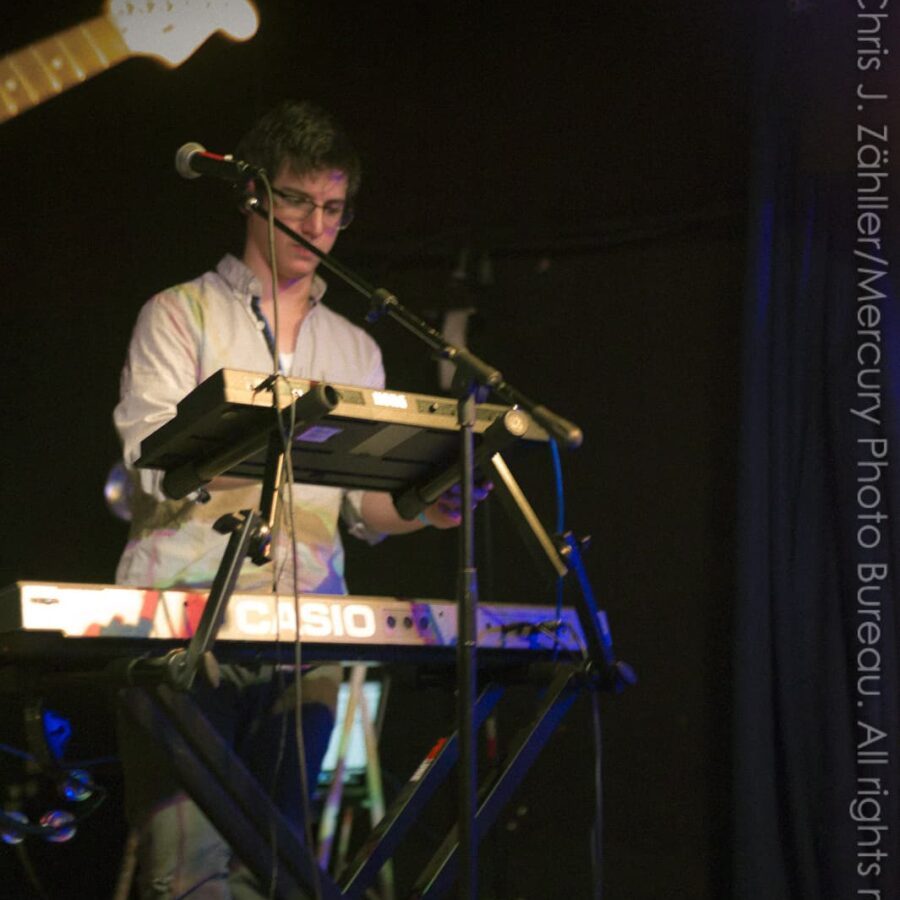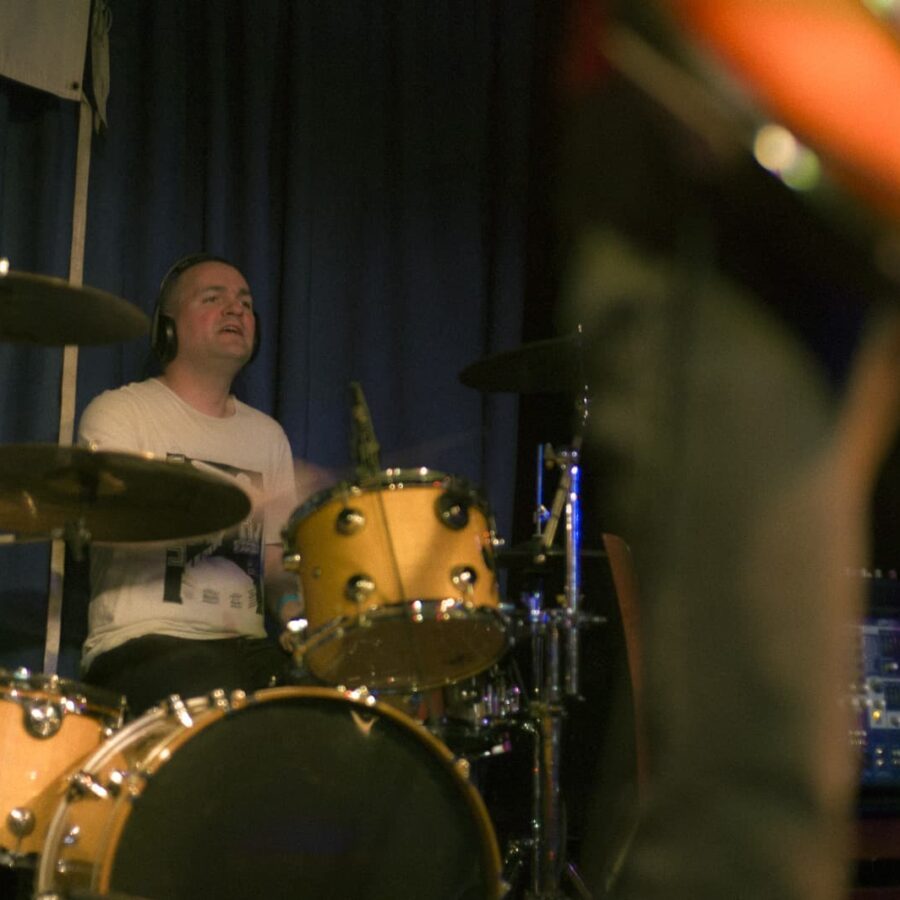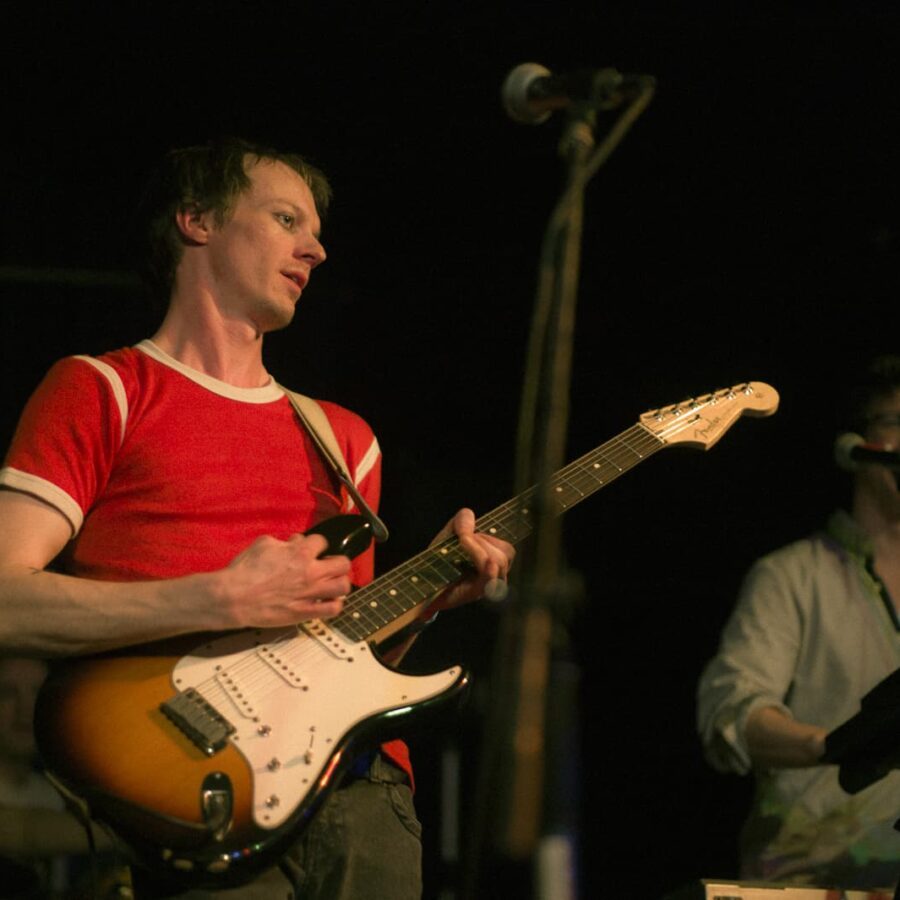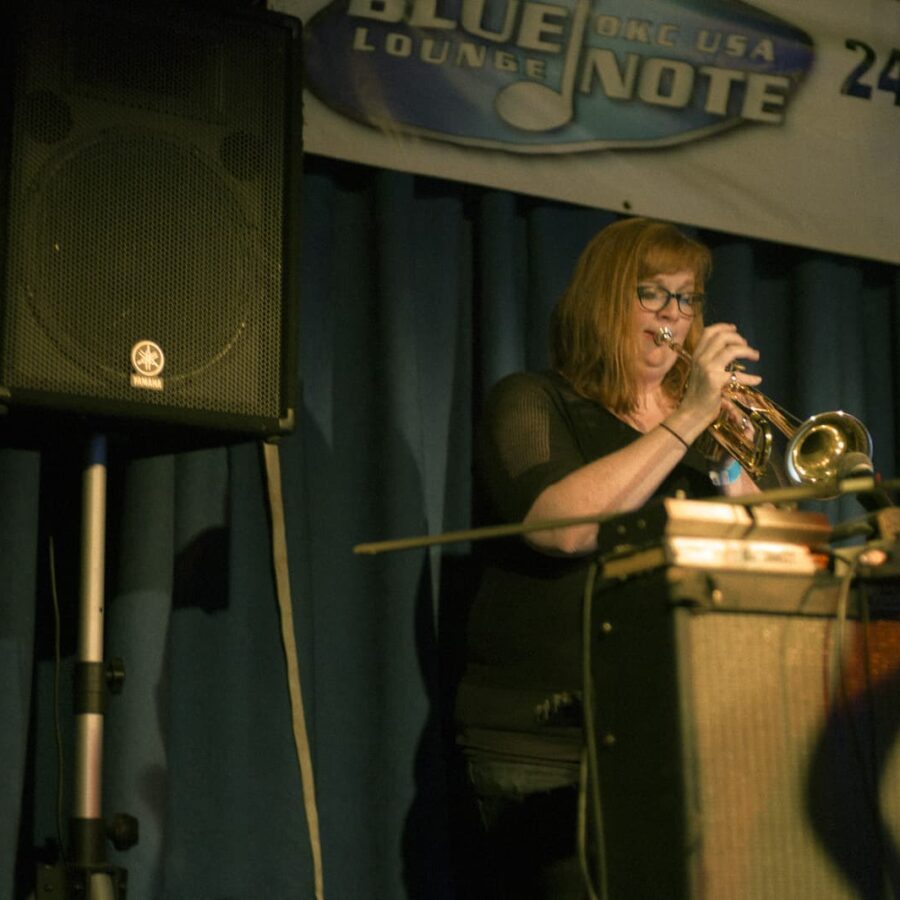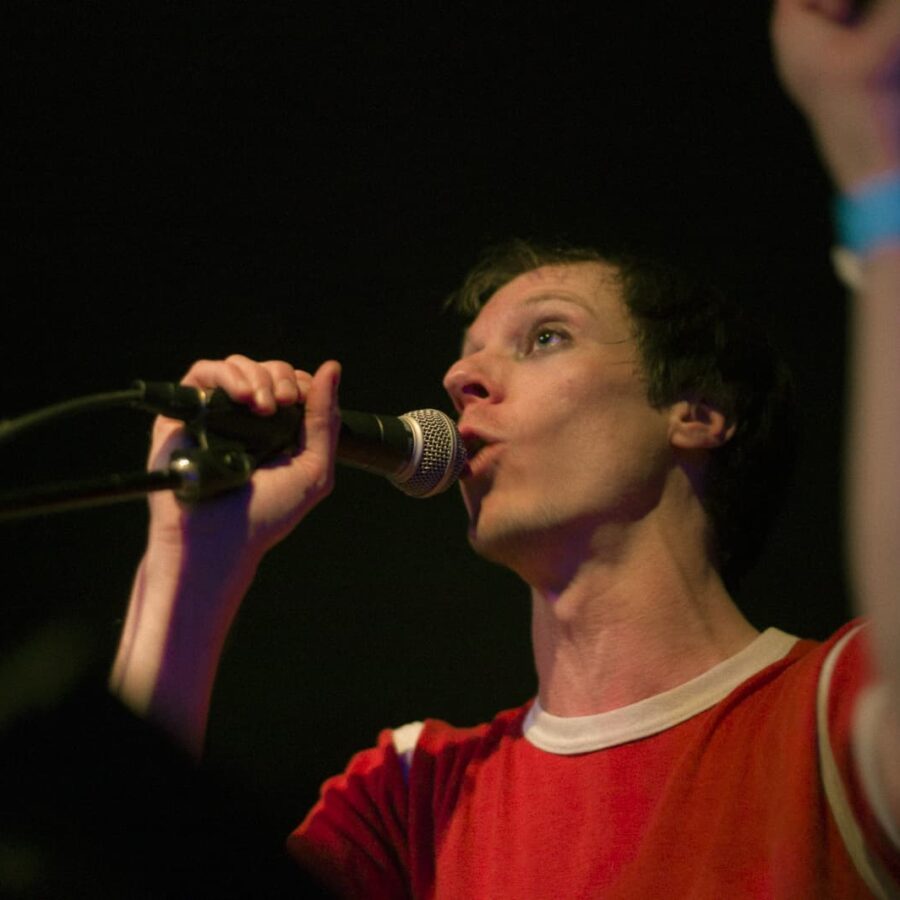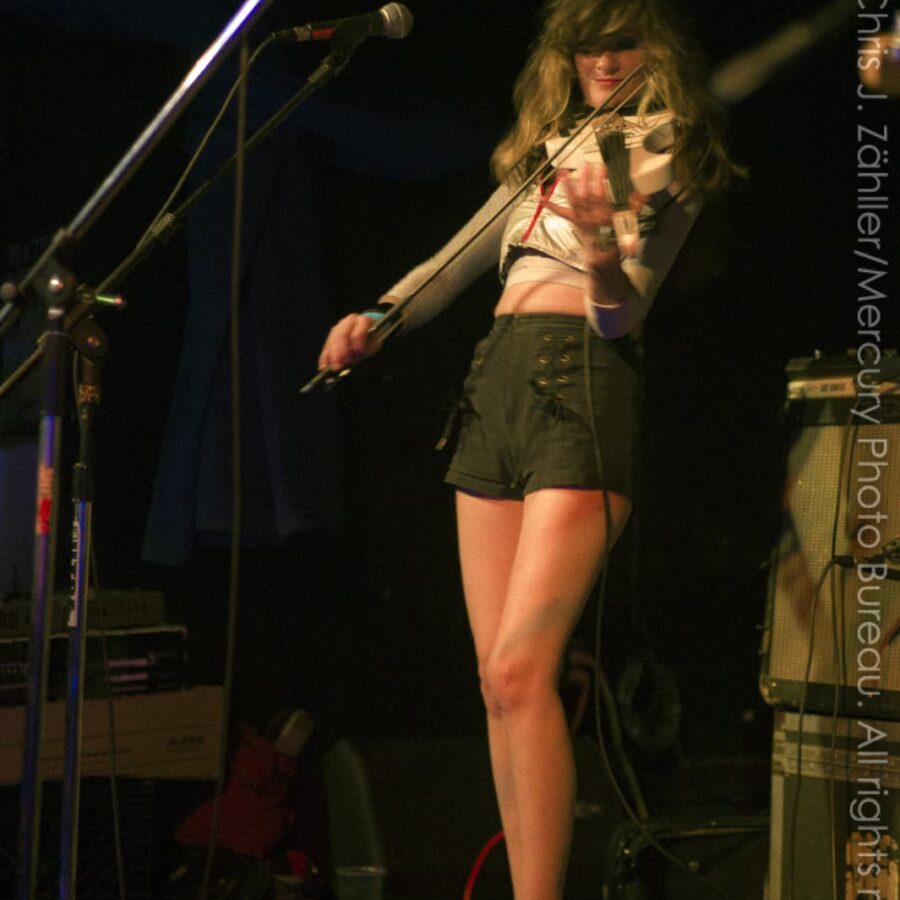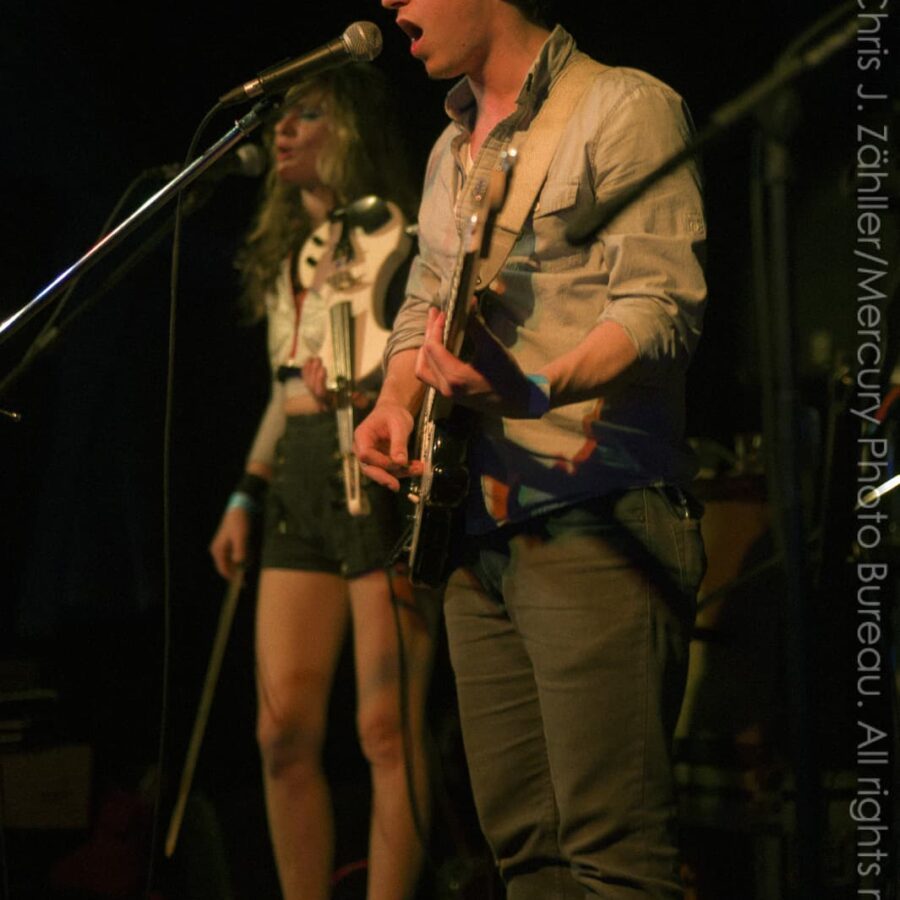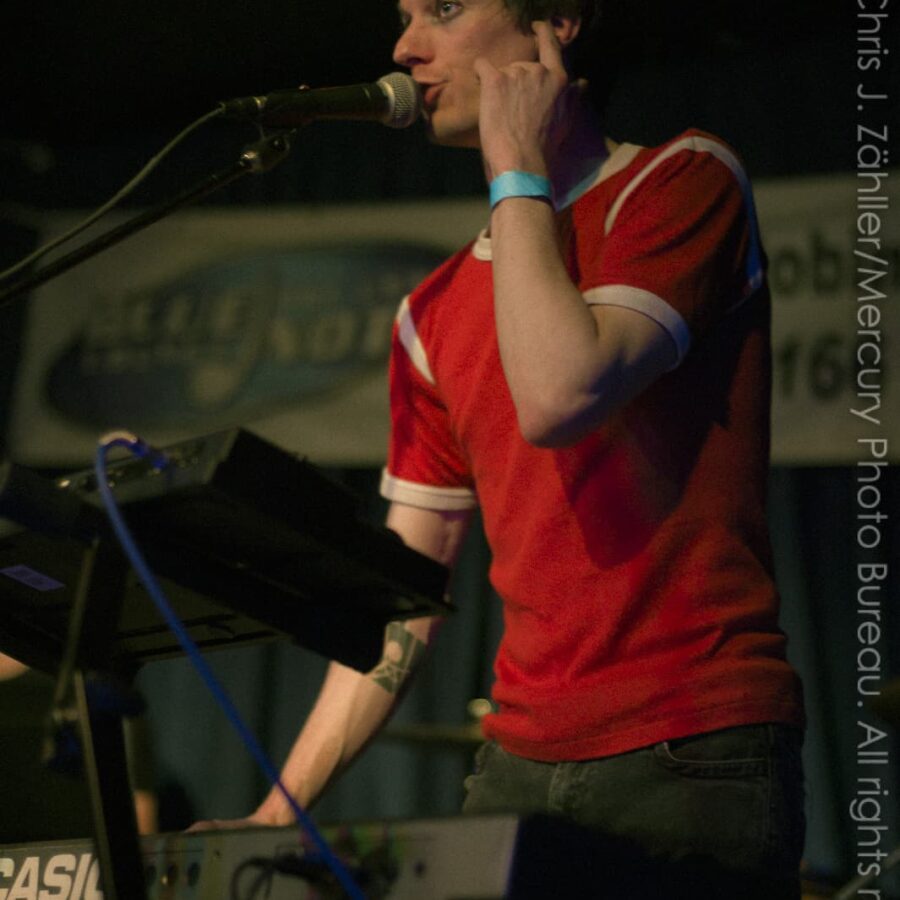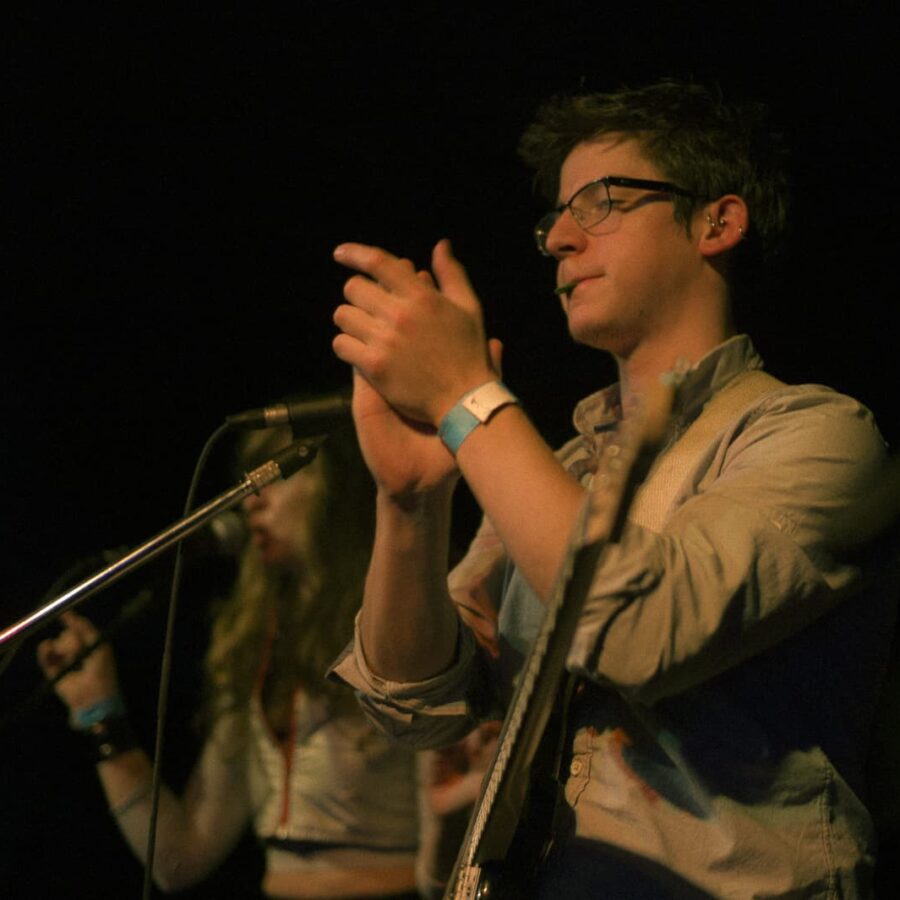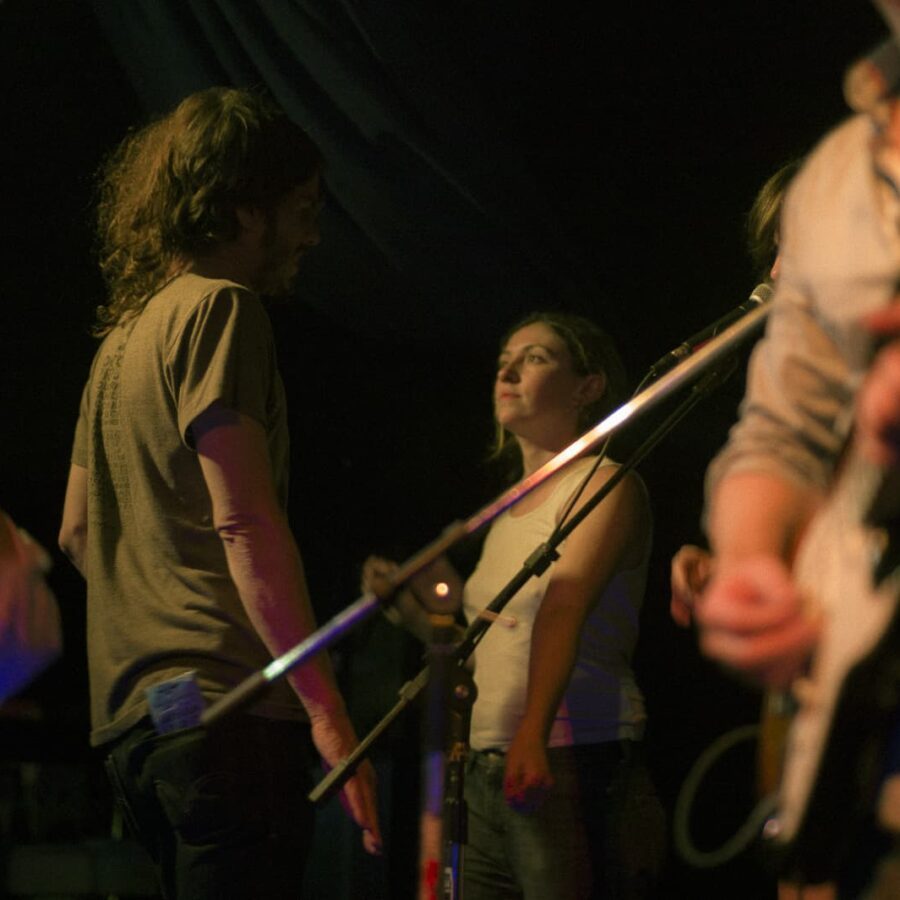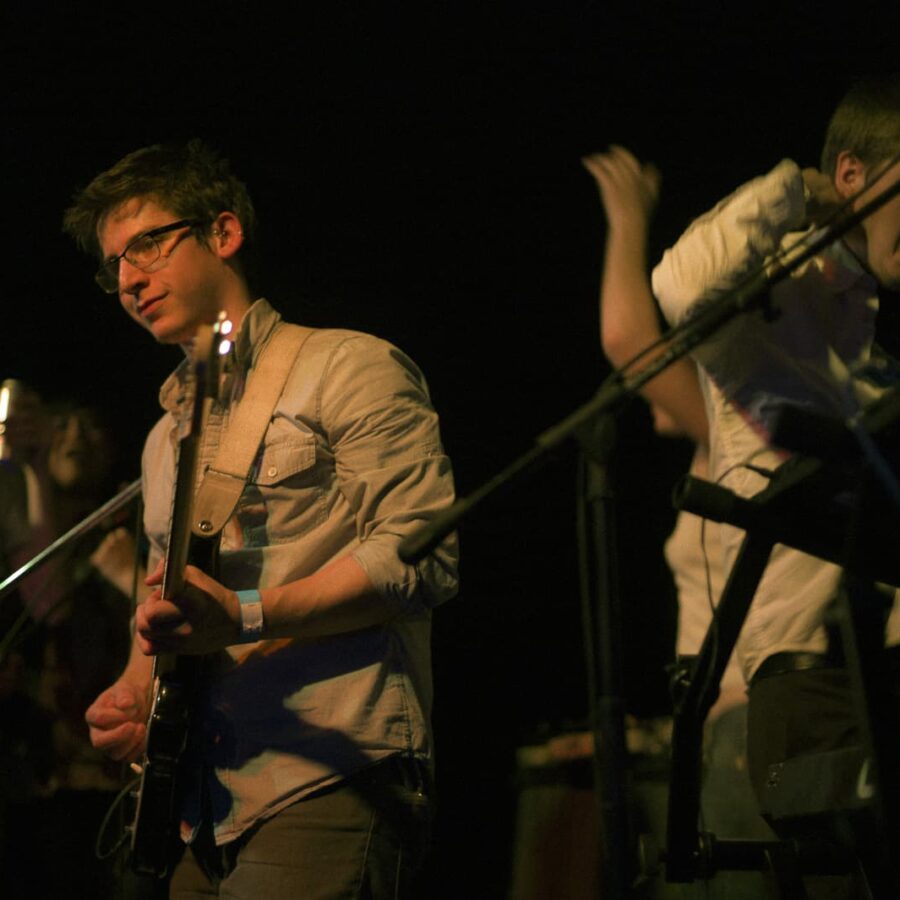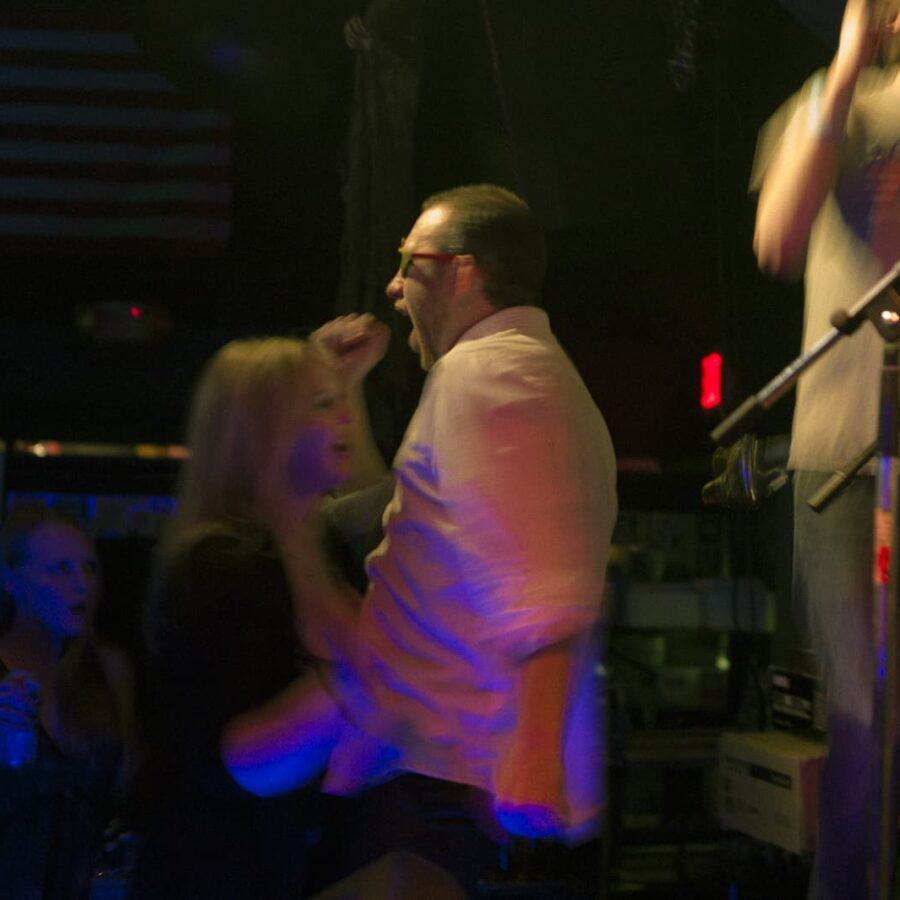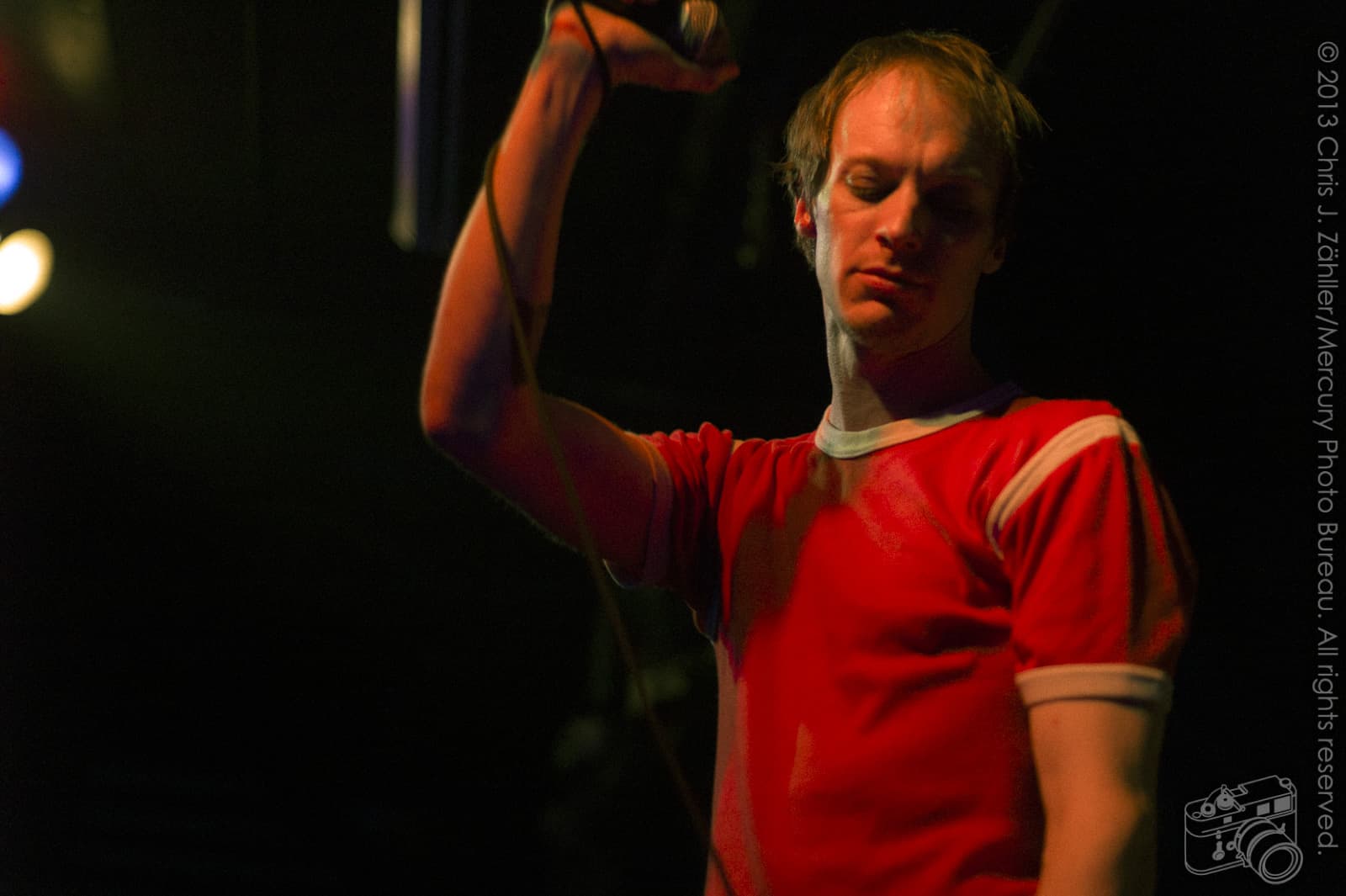
Kite Flying Robot Reunion Show & Interview
The Interview
The Interview
Kite Flying Robot sprang from the singular vision of Nikolas “Kite” Thompson. The band itself has seen a rotating cast of players over the years based on the exigencies of a nomadic lifestyle: there’s the California lineup (Thompson as solo artist), the Oklahoma lineup, and the lineup for South Korea. Thompson currently resides and plays in Seoul.
Thompson returned to Oklahoma for a short time in mid-February for a reunion concert at Oklahoma City’s Blue Note Lounge, followed by a second show at Tulsa’s Soundpony Lounge.
Mercury Photo BureauI understand that Kite Flying Robot started out as a one man DIY thing?
Nikolas “Kite” ThompsonI’ve played in rock bands my whole life, and I moved out to the [San Francisco] Bay [Area] after getting my B.A. in English. And I knew I wanted to be a writer, so I moved out there and kinda did a “homeless” thing for a while, and tried to [write]. I was […] passionate about both music and writing, but I […] figured writing [as a career] was more portable. Eventually, I decided that I wanted to [make] music again, and I wanted to do something completely different [than I had been doing]. I started getting into electronic music, [so] I got a really bad sequencer and some other equipment and I tried to do electronic music without really knowing anything about it.

MPBWhat was your previous musical experience?
Nikolas[I was a] guitar player and [singer], and I sort of plateaued out as far as guitar skill. I’d say that even now, I only play slightly better than back in 2004 or whenever that was. So I started [making] music at home, and I decided to do acoustic guitar with beats and sequences. I like verses and choruses; I see some bands that just use a loop pedal and kinda do the same thing and build on it and build on it and build on it, and while that’s cool, I like to change chords from part to part and come up with bridges […].
So I got into sequencing using this […] Korg Triton TR, which is not a terrible machine, but for sequencing is a pain in the butt. So I started doing that, but I did it with an acoustic guitar, because I knew I was going to be doing it by myself. Even though I still liked rock music and electric guitar … I thought it would be cheesy if I was up their by myself with a drum machine and an electric guitar. That probably stemmed from previous acts I’d seen, with a guy with an electric guitar with heavy distortion, and it seemed cheesy, and it was like I was watching somebody in their bedroom like, dick around on their guitar. So I did the acoustic thing with some beats.
And I sort of learned my way, and I made my first Kite Flying Robot album, and it was, uh, I don’t really release it now, because I don’t think it’s that great, but I think I learned a lot in the process.
MPBI saw that it was still available on your Bandcamp page.
NikolasIt is. […] I think if someone really wanted to go through it and find it, I figure, well, whatever. I don’t promote it; I took it off iTunes, because it costs yearly money to put it on there. Even though it sold sometimes, I just was like, eh.
I just don’t even care, you know, and I’d rather — and I was working on Solid gold, the songs that would become Solid Gold […] — and I’d rather that be [people’s] first listen […].
MPBI was glad to hear you practicing Red Phone Booth during rehearsal earlier. What’s the lyric about the filthy machine
mean? Is it the answering machine?
NikolasI guess that could be anything you want, but, uh, have you ever been in a phone booth before?
MPBOh yeah; they’re not clean.
NikolasWhat’s funny is, sometime I’ll write lyrics […] and I won’t really think about things; things’ll just come out; and I never […] meant filthy machine
to mean red phone booth.
But later on, I thought about it — this happens with most of my songs — I thought about it and I realized what it meant to me on some subconscious level […].
Blonde Bomb was like that. I just came up with all these ideas […] and later on […] the lyrics — it was basically like a prophetic song; something happened to me that was exactly, uh, exactly those lyrics, but […] after the fact. Specific things, like On the Rhine,
[…], that had happened before, but some of the other things, like the […] heartbreak aspect of Blonde Bomb, happened later.
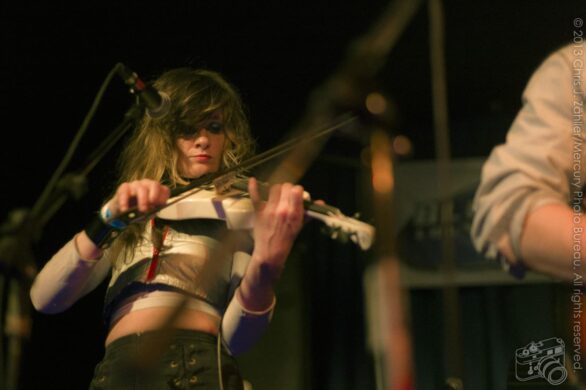
MPBIf you live long enough, that’s gonna happen. It’s like cancer.
Nikolas[laughs] Yeah.
MPBIn the song Criminal Supervixen, you drop a few cultural references. Just listening to you rehearse it, I caught Jay-Z, Disney, for a minute there I thought you were referencing [Brian] Eno, but that was “801,” not “808,” so I have no idea what that one is —
Nikolas808 is a drum machine; [Sidenote: The Roland TR-808 Rhythm Composer was one of the first commercially available programmable drum machines.] 39 Steps is —
MPB— of course, that’s Hitchcock, so, how do those references fit into your lyrical intent?
NikolasI guess I just thought it was funny, but […] it’s also part of what I enjoy in life; I just sort of like, 101, 808,
I mean, I just — I thought it was funny, and I did used to use 808 samples, and I’m a huge [Alfred] Hitchcock fan; he’s probably my favorite director. Not particularly a fan of 101 Dalmations, but I do like some of those older, darker Disney films. They had a huge impact on me when I was growing up. And then Jay-Z is just cool. And I just thought it was funny to reference, because the first line is, I got 99 problems,
and people immediately think, Jay-Z,
and then the next line being 101 Dalmations
is just funny.
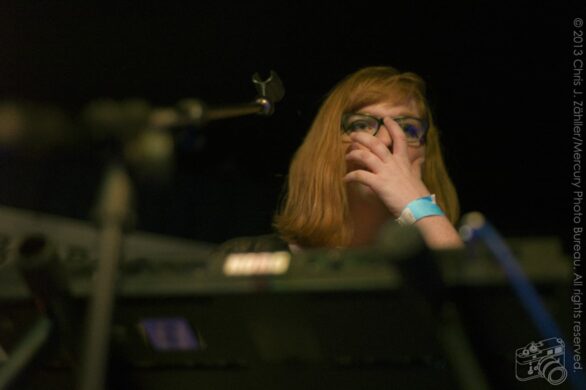
MPBYou say Disney movies were kind of a big influence, so, how old are you and when was your childhood?
NikolasI wouldn’t say they were a big influence, but [children’s] movies they make now aren’t nearly as dark as they were back then. I was born in 1980, so I got to see The Dark Crystal, Labyrinth, and The Secret of NIMH and An American Tail —
MPBMovies where there was a real sense of danger for the child protagonists —
Nikolas— and like that early Disney stuff, like Robin Hood, Lady and the Tramp —
MPBDumbo’s my favorite.
NikolasYeah, Dumbo, Pinocchio, those are dark as hell.
MPBThat pink elephant scene, oh man …
NikolasSpeaking of the pink elephant scene, this is [funny]; when you get home, take your copy of Solid Gold, put in the song Solid Gold and go to YouTube and look up that pink elephant scene and [play them together with the video sound muted] [Sidenote: No need to do that, as we’ve combined them for you here.] […] It’s weird how it lines up.
MPBKinda got a Dark Side of the Moon thing goin’ on there. How did you figure that out?
NikolasI don’t know. [pauses to think] I’m not sure. How did I figure that out? I think I downloaded Dumbo when I moved to Korea, 10 months ago. ’cause I had all this time, and I downloaded all these movies I hadn’t seen in forever, and I was just watching, and I was like, Oh! This is that scene I remember watching as a kid, with all the pink elephants!
And it had this kind of BOM! Bom! BOM! Bom!
tempo to it, that was just spot on […].
MPBYou moved to Korea 10 months ago, so what’s the story on that?
Nikolas[…] Sometimes the arrows of life point you through a door, and —
MPBThat’s pretty vague …
NikolasThere are some things that I can’t articulate, but what I can [say] is there were some debts coming to a head; I was having a hard time saving money in Tulsa — I had 2 jobs; I worked almost 60 hours a week and I was not happy, because I was not getting any time for music. I was working and being exhausted and I wasn’t able to pay much [of my debt] even though I was working that much […]. I’ve left Oklahoma before, and I just kinda needed to do it again.
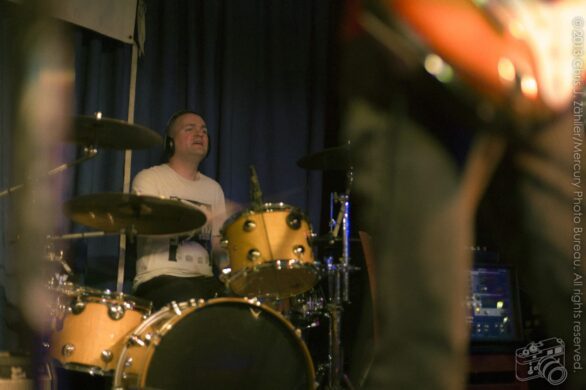
MPBAre you originally from Oklahoma?
NikolasYeah.
MPBSo, things are working out for you in Korea? Are you teaching ESL?
NikolasYes. I re-signed for a part-time job, ’cause now my debts are pretty much […] paid off. […] I paid [almost] all that back in 4 months […]. The new [job] is part-time [so I can devote more time to music].
MPBDo you find that, with the extra time, you put the work in on music, or is there a temptation to just go, say, sit in the park instead?
NikolasI […] get really depressed if I’m not [being] prolific, so there’s always a driving force […].
MPBSince you were born in the 80s, you actually missed disco, but I hear a lot of disco vamps in your music. There was a guitar riff that Alex [Larrea] played during rehearsal that sounded like pre-Beegees disco, probably by way of James Brown. Have you listened to a lot of disco?
NikolasNo, but the 80s had Italo disco, [Sidenote: An early form of electronic dance music associated with the ZYX record label. Drum machines and synthesizers were prevalent in the genre’s sound, with lyrics usually sung in English. Its most notable practitioner may be composer Giorgio Moroder.] pioneered by Giorgio Moroder […]. In the United States, people were very anti-disco once that, in 1979 —
MPBRight; there was that infamous record burning at Wrigley Field.
NikolasSo, you listen to even the stuff that Giorgio Moroder produced after that, like Call Me by Blondie, um —
Tanya FelterThe last of the disco era [shifted] into the 80s —
NikolasBut, I mean, he’s European, so — Italo disco was alive and well at discothèques in Europe in the 80s. [Later,] I […] discovered it, somehow, and I’d, like, never heard of it before, and I liked the timbres […] of the vintage analog synths more than — as much as I like — I liked some disco songs […] from the 70s, but, you know, I like something about [Italo disco’s] synth bass […], and 808 claps; it’s just […] really cool.
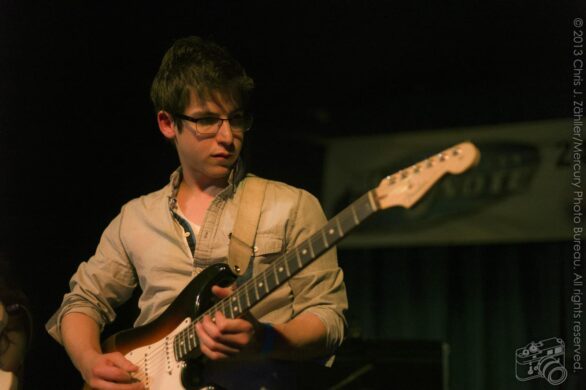
MPBI notice you’re using a lot of gated percussion sounds — pretty typical of 80s production.
NikolasYeah.
MPBTanya, since you’re here, you wanna tell me how you met this bloke?
TanyaWell I was playing in a band called Ghosts of Monkshood. They were together [for] 2 years before I joined them, and then I was with them for the last […] 4 years. We were always looking for people to play with, and someone had mentioned Kite Flying Robot and that my friend Krista was in it. And I thought, Oh, that’s cool.
NikolasThe first official other member — when I moved back to Oklahoma, I wanted to expand [Kite Flying Robot] — and I met this girl named Krista, and she was really nice, and a great vocalist, and we hit it off. And we became best friends, so she joined the band.
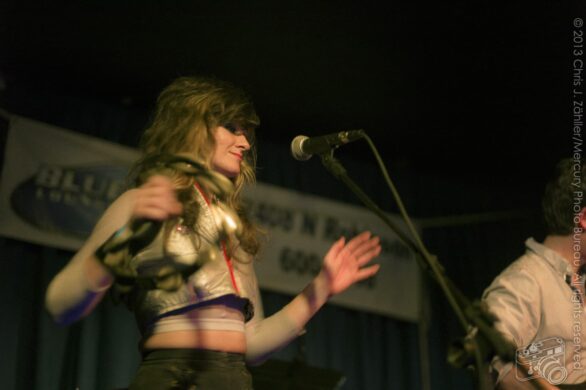
TanyaSo, we were always looking for people to play with […]; I definitely liked what I heard [from Kite Flying Robot], so we played a show together at the HiLo [Lounge]. And that’s how we met.
And then, years later, Ghosts of Monkshood was falling apart, and I’m actually at a CD release party for another band, Brother Gruesome, and Nikolas is there, and there’s karaoke afterwards. So I got up and sang some Siouxsie and the Banshees and Nikolas is like, Hey, we should sing a song together!
So we sang a song by The Human League. And like, 2 days later, we were like, Hey, do you wanna —
NikolasI rememember 2 things happening. There was that time, and the time we were hangin’ out at Cookie’s. […] We connected on both those nights. I remember when were at Cookie’s; we talked about Blondie that night.
MPBThe band membership is kind of fluid; I think I read somewhere that in some iterations there are as many as 13 people?
Tanya[laughs]
NikolasI haven’t added it up, but it’s probably — oh, you mean at one time? No, it’s never been more than 5. The most people on one song — I have […] a new song coming out that has a 30 piece choir on it. Actually, it’s doubled, so 15 piece choir and maybe, 4 other musicians […].
TanyaThere’ve just been a lot of people in and out.
NikolasFor one reason or another […]. I don’t think I’ve ever really kicked anyone out […].
MPBHave you tried any long distance collaboration, as far as trying to lay down tracks and such?
NikolasYeah, I have. In Korea, the version of Airplane Nosebleed was different than what’s on the album, so I had Tanya [lay down] some vocals and viola at her friend’s house. And then, Mike [Rodriguez], who used to play drums for us, lives in L. A. now — he does some producing, so he’s actually on bass and drums on the song I just mentioned, with the choir. […]
MPBYou’re playing without a bass guitar tonight. Do you sometimes have a bass on stage?
NikolasNope. Every song has synth bass. Like, a good friend of mine who’s a really good bass player sort of hinted that he wanted to be in the band, and I was like, Well, if we do that, we’re not gonna have that [synth] sound. If I was gonna have a bass player […], I’d totally have you, but it would […] take away from that sound.
MPBI ask pretty much every musician I interview to redeem a song; that is, tell us about a song that doesn’t get much respect, but that you really like, and tell us what’s so great about it.
Nikolas[…] Donna Summer’s I Feel Love […]. A lot of people, when you say the “D” word, they get all freaked out. That’s another Giorgio Moroder-produced song. That’s, like, the one that maybe made [his reputation].
I saw in a documentary that when that song came out, people were just […] blown away; they didn’t know what to make of the sound. There was this arpeggiated synth bass underneath —
TanyaSynth and angels —
Nikolas[laughs] I’d say I like — not everything Moroder’s done, because he’s done some cheesy stuff […].

MPBWhat are your future plans for Kite Flying Robot?
NikolasI don’t know, because I ride by the seat of my pants, and I take opportunities when I find them. People are asking me how long I’m gonna stay in Korea, and I’m like, Well, I dunno. I thought I was gonna go for a year, and here I am going back.
[…]
I do play as Kite Flying Robot in Korea; I have a guitarist […]; he’s Canadian —
MPB— or does he just say that?
Nikolas[exasperated chuckle] He’s Canadian. But I mean, uh, like Criminal Supervixen and Fire with Me and some of those songs don’t really go well with a full band, so I’m gonna release an EP with some kinda new stuff and all sequenced drums […].
MPBThank you very much, Nikolas Kite.
Gallery: Rehearsal
Gallery: The Rehearsal
Gallery: The Show
Gallery: The Reunion Show



